THE JOURNAL
Travel Advisor Resources

How Do Travel Agents Get Paid? (And Why Fora Does it Differently)

The Modern Travel Agency
Fora Travel
https://www.foratravel.com/the-journal/how-do-travel-agents-get-paid

A career as a travel advisor is an exciting opportunity to meld your passion for travel with your professional life.
As you dive into thinking about your new career in the travel industry, one of the first questions you’ll likely consider is “How do travel agents get paid?”
Before diving into the details of how a travel advisor earns money, make sure you’re in-the-know on what a travel agent is ... The high-level overview is that a travel advisor (often used interchangeably with the term “travel agent”) is someone who earns money by planning, selling and booking travel.
Read on to learn how travel agents get paid in the industry at large, plus, get insight on how Fora sets up our advisors up for success. When you’re ready to dive into your new career as a travel advisor, sign up to become a Fora Advisor .
How do travel agents make money in the first place?

Travel advising is a commission-based industry. Travel agents, including Fora Advisors, are predominantly paid in commissions. A commission is a percentage of the cost of a travel experience (such as a hotel stay). Some agents also charge planning fees for additional services (more on that below).
As a travel advisor, you can earn money from booking leisure travel or corporate travel (or both)! Below, we've outlined an overview on the two primary ways travel agents make money.
1. Travel advisors earn commissions from booking travel
For the travel agent industry at large, commissions are the centerpiece of how travel agents are paid.
Let’s say a client wants to stay at a nice hotel during their trip. They connect with a travel agent, who books the client’s room on their behalf. The hotel will then pay commission based on a percentage of the room cost. The commission varies from property to property (every brand is unique). It’s worth noting that most 4- and 5- star hotels have commissions already baked into the total cost of a stay, and so your clients pay the same as they would if they booked direct (plus, you can often hook them up with extra perks and incentives along the way just by booking with you).
And it's not just hotel bookings. There are plenty of other types of travel that are commissionable for travel agents , with travel companies ranging from rental car brands, cruise lines, vacation packages, tour operators, travel insurance and more.
Again, commissions will vary from partner to partner, but typically pay the agent 10 to 15 percent of the booking cost, and sometimes more (depending on the brand and type of partner). For example, it’s not uncommon to see cruise lines that offer commissions at 20-25 percent. Commissions are typically split between travel advisors and their host agencies (more on that below).
2. Travel agents can also charge planning or service fees
There are other ways travel agents are paid that go beyond commissions. Many travelers want an agent's assistance to get the most out of their experience (or they simply want to outsource the trip planning to someone they can trust). Better yet, many of these clients are happy to pay a premium to take their travel to the next level.
In cases like this, travel advisors can earn money from planning fees. Travel advisors can opt to charge fees for things like custom itineraries, airfare/airline tickets, add-on’s and more.
Many Fora Advisors count planning fees (charges for creating tailored itineraries) as significant revenue. The exact fee amount varies by advisor, but a common starting point is $250 per week of travel planned. Travel advisors with more experience often charge more. That fee adds up quickly if you have multiple clients planning trips.
How do travel agents get paid?

Fora Advisor Gaya Vinay
Travel agents are typically paid by their host agency
When you become a travel advisor, you’ll likely want to join a host agency. A host agency is a business that provides support and resources to travel advisors, especially those who are independent or work as freelancers. Think of yourself as a small business owner. (Learn more about how to become an independent travel agent ).
By affiliating with a host agency, travel advisors gain access to a range of benefits including enhanced commission rates from travel suppliers (the travel brands that advisors book with).
This partnership allows travel advisors to focus more on client service and growing their business, while leveraging the buying power and industry relationships of the host agency. For new advisors, a host agency can also offer a structured path to enter the industry, providing necessary guidance and resources to establish themselves in the competitive travel market. At Fora, we’re serious about welcoming newcomers into the industry, and offer a comprehensive program to help you go from travel lover to travel pro.
Every host agency has a different way of approaching payments, but at Fora, we pride ourselves on our approach that makes commission payments easy. We offer our travel advisors complete commission tracking and payment services, which means that our finance team does all of the invoicing, tracking and direct deposit payments – so you can focus more on the fun part (travel planning, that is).
“With Fora, I just forward confirmation and details, and we have our own back-end customer relationship manager that shows us the progress of the booking and the commission status,” Fora Advisor Amna Ismail said in an interview with TravelAge West . “There’s a department just for commissions, so they do the following up. It's an awesome perk.”

- Caribbean ,
- Bespoke Experiences
Travel agents get paid after their client finishes traveling
If you’re used to a career that pays hourly or by salary, getting used to a commission-based role may seem daunting, but the process is relatively straightforward.
In terms of how it works, once your client finishes their travel experience, the travel partner (supplier) pays the host agency a commission. Without getting too into the nitty gritty, the main thing to know is that a host agency has an IATA number which is used in the process of commission claims and payments (it identifies the agency in transactions with travel suppliers). Then, a host agency then pays its advisors. At Fora, we handle all of the commission tracking and payments for our advisors.
On average, how much do travel agents make? Do travel agents make good money?

An important aspect of the answer to the question, “How do travel agents make money?” is how much that pay is (i.e., how much do travel agents make per booking , personalized itinerary, etc.). There’s no easy answer to this, and for many, you get out what you put in.
Ballpark estimates: some of our full-time, expert advisors earn well into the six figures (or beyond). Others make extra income as a flexible, part-time role. You can learn more in our guide on travel advisor salaries .
For a more lucrative career, you might consider focusing on a niche, like working as a Disney travel agent or focusing on high-end travel (learn how to become a luxury travel agent ). Or, you can specialize in something like cruises, which typically offer higher commissions. Learn more how to become a cruise travel agent . Ultimately, picking a niche and focusing on it is an incredible tool to help you build your book of business.
How does Fora help travel agents get paid?

Fora Advisor Brit Healey
From handling payment logistics to a offering best-in-class training, here’s how Fora is different from traditional travel agencies — especially when it comes to how our travel agents get paid.
We handle all of the invoicing & payments
You might be surprised to learn that most traditional travel agencies and agents often have to chase down the commission they're owed. Not at Fora. We invoice our travel partners for you, track commissions and follow up with partners to ensure you get paid.
How do travel agents get paid by Fora? When you make a booking via our all-in-one booking platform , our in-house finance team is automatically alerted. In Portal, our integrated travel advisor platform, you'll be able to see the status of past and upcoming commission payments in an easy-to-view layout. We take care of all the invoicing and payouts, so you don't have to lift a finger. Your commission will be deposited directly into your bank account. (By the way, it's not uncommon for old-school payment methods – ahem: checks – to exist somewhere along the payment pipeline in the rest of the industry. As a modern travel agency, however, Fora pays advisors via direct deposit.)
Fora doesn’t have minimum sales quotas
Book as much or as little as you want, on your own terms. Our flexible approach allows you to build your career as a travel advisor the way you want.
Fora offers a wide suite of preferred partners (many of which have enhanced commissions)
Fora has established partnerships with over 4,500 hotels worldwide, granting our advisors the ability to offer their clients unique upgrades, perks and benefits at these locations. This extensive network includes esteemed hotel groups like Virtuoso, Four Seasons and Rosewood, among others.
In addition, we have our own in-house preferred partnership program, called Fora Reserve. Our collaborations span across luxury and boutique lifestyle segments, ensuring we cater to a diverse range of client preferences.
For all of our preferred partnerships, we have a dedicated team that helps to negotiate travel agent commissions to offer our advisors higher commissions at many properties around the world.
We’re focused on the bottom line of your business
There are two more areas that affect how travel agents get paid, at least in terms of their bottom line: travel agent certification and travel agent training . Traditional travel agencies often require prospective travel agents to pay hefty fees and tuition before they ever get paid a commission. These upfront costs impede how quickly you can build your business.
Fora does things a little differently. We offer in-house training ranging from the basics of becoming a travel agent to more advanced topics like group bookings and working with DMCs .
All of this training is fully remote (learn how to become a travel agent from home for more info).
Last but not least, we support our Fora Advisors with building their book of business. Get our five tips on how to build your clientele as a travel advisor for a little preview of our approach.
Have more questions beyond “how do travel agents get paid?”
We have plenty of resources for you, including our comprehensive guide on how to become a travel agent .
Interested in joining us? Sign up to become a Fora Advisor today.
Are you the go-to person for travel tips?
Transform your passion for travel into your dream job. We'll set you up with everything you need to succeed as a travel advisor. From training to top-notch tech, marketing assets, community, commission tracking & payments (and more), we've got you.
Student Login

Demystifying Travel Agent Commissions: How Much Can You Really Make?
Apr 2, 2024 | Abundance , Aspiring travel agents , Launch a travel business , Sales , Travel Business
Whether you're considering a career in the travel industry or seeking to maximize your earnings as an agent, we’re uncovering the potential income opportunities for travel agents while also providing practical tips for navigating a commission-based model effectively.
Originally posted October 2020, updated April 2024.
In our bustling world of travel, where online booking platforms reign supreme, our role as travel agents might seem like a relic of the past. However, for those curious about the inner workings of this industry, understanding how we make commission can shed light on the viability of this profession as a source of income.
Today, we’re peeling back the curtain and taking a look at the secrets behind travel agent commissions, and addressing the most common questions we hear about income potential and payment processing.
Rather watch than read? Check out the video below!
The Importance of Travel Agent Commission: Why Vendors Pay Agents
Let's start with the basics: how exactly do travel agents earn their commission? In an era dominated by online booking platforms like Expedia and Priceline, some might wonder why anyone would still turn to a travel agent. The truth is, while you can book directly through vendors or use OTAs (Online Travel Agencies), the value of a travel agent lies in their expertise and personalized service.
When you book through an OTA, they pocket the commission that would otherwise go to a travel agent. Similarly, booking directly with a vendor doesn't necessarily save clients money, as the vendors retain the commission while offering clients the same price.
So why do vendors pay travel agents? It’s simple – they rely on us to promote their brands, match customers with their products, and navigate the complexities of travel arrangements.
Said another way: travel agents act as ambassadors for vendors, promoting their offerings and providing invaluable guidance to customers. This guidance occurs because agents receive special training, access familiarization trips and have personal relationships with the vendors. We become experts in the products we sell, ensuring that clients receive the best possible experience tailored to their needs.
This commission model ensures a win-win situation for both parties, as agents bring value to suppliers by promoting their brands while also assisting customers through the booking process, and travel agents get their customer’s tailored experiences and special perks!
Deciphering Commission Rates
So, how much commission do travel agents actually make? While it varies by supplier, the standard commission typically hovers around 10%. However, this can increase based on factors like sales volume, preferred supplier status, or negotiation skills. For instance, cruises often offer higher commissions ranging from 16% to 18%, making them lucrative options for agents.
Compared to costly large scale advertising, travel professionals can be an efficient and cost-effective way to gain bookings for suppliers. So this commission is mutually beneficial to both the supplier and travel agent!
Calculating Income Potential
Now, let's crunch some numbers. Suppose you're booking two vacations per week, each averaging $5,000, at a 10% commission rate. ([$500×2] x 52 weeks) That amounts to roughly $52,000 per year.
You can also work backwards.
If you are hoping to make $60,000 a year, per month divided by 12, that’s $5,000 per month in sales. If each vacation is only $5,000 ($500 commission)- that is about booking 10 vacations a month (or 2.5 vacations a week).
With strategic growth, higher ticket vacations and/or increased sales volume, reaching six figures becomes a tangible goal for many agents.
Let’s check out one of those six figure goals. If you are hoping to make $200,000 a year, per month divided by 12, that’s $16,700 per month in sales. If each vacation is only $5,000 ($500 commission)- that is about booking 34 vacations a month (or 8 vacations a week).
This doesn’t even include the tours, upgrades, add-ons or booking fees that can increase that bottom line.
For just a $199 planning fee, that’s an additional $25,870 per year (130 vacations x $199) added to the bottom line for our $60,000 travel agent. That’s an extra $81,192 per year (408 vacations x $199) for our $200,000 travel agent.
It’s also worth noting that income potential isn’t just about making sales; it's about building lasting relationships with clients. In an industry where repeat business is common, attracting and retaining ideal clients is key to long-term success. This involves honing marketing skills, leveraging online platforms, and delivering exceptional service that keeps customers coming back for more.
Want to learn more about marketing and sales? Read this post about the most common pitfalls we see travel agents make.
Understanding Payment Timelines
It's important to manage expectations regarding payment timelines. In most cases, agents only receive their commission after travel has been completed, which can lead to a waiting period of several weeks or even months. You also have to consider splitting your commission while being hosted (working under a host’s license). Commissions paid to your host can typically be expected a month after they are received by the host due to payroll cycles.
One way to support your business while you wait for commissions is to implement a fee structure. This is one of the strategies that we teach in Careers on Vacation. Learn more about our 12-week mastermind by clicking here .
Transitioning into the world of becoming a travel agent requires more than just booking flights and hotels. It's about mastering the art of customer service, marketing prowess, and business acumen.
So, whether you're a seasoned agent looking to boost your earnings or someone considering a career change, remember: the travel industry is ripe with opportunities for those willing to seize them. By understanding the intricacies of commission structures, mastering marketing techniques, and delivering exceptional service, you can turn your passion for travel into a lucrative and fulfilling career.
Pin for later!

Explore by category
Travel business, masterclass: put your love of travel to work for you, read the latest posts.

3 Reasons to Become a Travel Agent
Have you ever dreamed of turning your passion for travel into a rewarding career? We've identified the top three reasons why becoming a travel agent might be the perfect path for you. Discover how your love for travel, commitment to self-investment, and...

3 Proven Revenue Boosting Strategies for Travel Businesses
Discover three powerful revenue boosting strategies for travel businesses. Elevate your income and stabilize cash flow with these expert tips. Originally posted April 2021; updated May 2024 Are you ready to take your travel business to new heights? In the...

A Travel Agent’s Guide to Asking for Referrals
Unlock the secrets of successful referral marketing in the travel industry with our comprehensive guide. We’re sharing practical tips, insightful anecdote, and actionable steps to harness the power of referrals. Originally posted February 2021; updated May 2024 ...
Grab the free toolkit: Top 10 Tools for Travel Agents
So many travel agents struggle to grow their businesses because they don’t have the right tools in their toolbox. 🙁
That’s why we put together Cyndi’s Top 10 Tools for Travel Agents – to give you the tools you need to grow your client base and business!
Inside, you’ll find:
💰 Valuable marketing content 👀 Helpful YouTube videos 🎨 Design resources 🎧 Podcast episodes 💸 Discounts and coupons ⭐ …and SO much additional gold to help you grow your business!
You’re going to love it!

JOIN THE FREE MASTERCLASS
Wondering if becoming a travel agent is right for you .
Our travel agent trainings and certifications have helped thousands of people successfully transition into making travel their new way of life. Grab a spot in our masterclass and learn the simple systems our clients use to create wildly successful travel businesses in record time.
How Do Travel Agents Make Money? [The Travel Agent Business Model]
In the past, travel agents made money from commissions from airlines and hotels. And while this is still a key revenue source for travel agents, the increasing prevalence of online booking has made them look for new sources to diversify their income. So, how do travel agents make money today?
Below, we explain the different ways in which independent professionals and online agencies generate revenue in the ever-changing travel industry. By understanding the rewards that come with taking on the role of a travel agent, you will gain insight into this often-overlooked career path and how it could fit into your own life goals.
How Do Travel Agents Work?
Travel agents work to provide their clients with a stress-free and personalized travel experience by taking care of all the details and providing expert advice and support. Travel agents can work independently or for travel agencies.
The key role of a travel agent is to assess their client’s needs and make the necessary recommendations and arrangements based on them. Services provided by travel agents include:
- Consultation – Determining the client’s travel needs, budget, and preferences. This includes asking questions about the purpose of the trip, the desired destination, preferred travel dates, accommodation preferences, and any specific requests or requirements.
- Research – Identifying the best travel options available for the client (flights, hotels, rental cars, tours, and activities).
- Booking – Making travel arrangements on behalf of the client.
- Confirmation – Verification of all details related to the booking, including providing the client with the necessary information, such as flight times, hotel reservations, and tour details.
- Follow-up – A travel agent may provide advice on travel visas, travel insurance, packing tips, and other travel-related issues.
How Do Travel Agents Get Paid?
The most common way a travel agent gets paid is from commissions from airlines, cruise lines, or tour companies for packages sold. The commission rate varies depending on the type of travel and the agreements with travel providers.
Additionally, travel agents get paid a fee by their clients for their services. The amount of the service fee is entirely up to the agent and is related to the type of services provided. Typically, it’s charged for arranging some or all segments of the travel.
If the travel agent is employed by an agency, then just like any other employee, they’ll receive a salary or hourly wages.
Net price overages are also an option for many agencies. So, for instance, if an agent books a certain number of hotel rooms, the vendor gives them a discount which is then marked up, and the difference is kept by the agency.
Some travel agents may also earn additional revenue by offering travel insurance or upgrades to accommodations or transportation.
Travel Agent Business Model
The simplest way to describe the business model of travel agents is to go by the main source of income. Based on this, there are two types of business models:
- Commission-Based
The commission-based business model allows travel agents to earn a percentage of the total cost of a travel package, such as flights, accommodations, and activities. Depending on whether the package is domestic or international, travel agent commissions may be as low as 5% or as high as 20% or more.
- Service-Fee-Based
In a service-fee-based business model, travel agents charge their clients a service fee for their expertise or assistance in planning a trip. If the travel agent is in the role of an advisor, they may recommend a popular destination or deal on a specific trip.
Alternatively, they may provide help for any given element of the trip, from booking a hotel room or flight to booking a spa treatment. The fee charged can be a flat rate or a percentage of the total trip cost.
It’s important to note that with the rise of online booking platforms, the travel industry has become more competitive, and many travel agents use a combination of commission and service fees, plus access to exclusive deals and pricing. This way, they’re able to offer their clients a unique and personalized experience while staying competitive in the market.
How Travel Agents Make Money
Here are the most common ways travel agents make money.
1. Travel Insurance Sales
Travel insurance is essential to ensure your trip is protected in case of any unexpected changes or emergencies. Travel agents can sell insurance policies for their clients, which provide coverage for things like flight cancellations, lost luggage, and medical expenses. Depending on the policy sold, agents can earn up to 40% in commission.
2. Cruise Sales
Travel agents may receive a high commission or bonus on cruises based on the number of rooms booked by their clients. Typically, the commission rate for cruises is around 12%. This is because a large number of passengers are required to fill a ship.
Note that a significant portion of clients’ bills is taxes. For instance, a booking for cruise berths priced at $4,000 might include taxes amounting to $1,500. When booking cruises, agents earn commissions only on the portion of the cost that is not taxed.
3. Car Rental
Depending on the car rental agency, agents may earn between 8% to 10% commission on bookings. Other travel agents charge a flat fee of $20–$40 for making the reservation with the car rental company.
The car rental industry is highly competitive, so the key here is for travel agents to establish relationships with different companies and shop around for the best rates for their clients.
From visiting vineyards in Tuscany to exploring the rainforest in Costa Rica, tours are an excellent way for clients to get the most out of their travels. Agents can earn commissions ranging between 10% and 20% when they book a tour package and may also receive incentives such as free rooms or discounts on future trips.
5. Premium Listings
Car companies, airlines, and cruise lines pay handsomely for premium listings on travel agents’ sites. This gives the company more visibility and may help them generate more revenue. Typically, agents negotiate a commission for booking trips with these companies or charge a flat fee for providing access to the website.
6. Vacation Packages and Deals
If a travel agent is employed, they can use the buying power of their agency to get discounts and special offers which they can then pass on to their clients in the form of reduced hotel rates, exclusive deals, and other incentives. Usually, the commission rates for booking vacation packages range between 10% and 15%.
7. Niche Travel
Focusing on a niche area can be highly profitable for travel agents because it allows them to refine their expertise and cater to clients seeking a specific type of trip, like wedding and honeymoon or sports travel.
Some agents have two distinct branches of their business. The first covers travel to various destinations worldwide, while the second specializes in a particular theme like yachting, wine, or culinary adventures. For instance, an agent could sell packages for resorts and cruises while also organizing unique wine or food-related trips.
8. Mode of Travel
Vacationers have options beyond just using traditional modes of transportation like planes, trains, and cars. For instance, they can choose to explore an area by cycling from one spot to another. It’s the agent’s responsibility to arrange the logistics of the trip, from transportation to the actual adventure.
9. Corporate Travel
Many travel agents make their money by organizing custom trips for corporations. From organizing team building, corporate retreats, or special rewards trips, corporate travel is an excellent source of revenue and provides the opportunity for the agent to make long-term relationships with companies.
Travel agents may be paid an hourly fee for their services and/or a commission on airline tickets, cruises, and hotels and resorts. They could also receive incentives to book certain properties or activities, such as golf courses or spa treatments.
How Much Do Travel Agents Make Per Booking?
A travel agent’s commission may be as low as 5% or as high as 30% and depends on various factors such as the type of booking, the element of travel, and the vendor they book with. In addition to commissions, travel agents’ income can come from other sources, such as service fees.
For example, if a travel agent earns a commission of 10% on a $2,000 booking, they would make $200. However, if the booking is a complex itinerary, such as a multi-country trip, and the travel agent charges a service fee of $200, their total income from that booking would be $400.
Do Travel Agents Get Paid Hourly?
Yes, travel agents can be paid by the hour, and it’s a more common type of compensation for travel agents who work for larger agencies. The average hourly pay of travel agents in the US currently stands at $17.71 and goes as high as $28 per hour in states like New York, California, and Nevada.
However, travel agents are typically compensated in different ways, and their pay structure may depend on the company they work for and the type of travel they book. And while some are paid on an hourly basis, most receive a salary or are paid on a commission basis.

How Travel Agents Get Paid (Explained in Simple Terms)
How Travel Agents Get Paid
Planning a trip can be a lot of work, and it’s easy to see why people would want to hire a travel agent to help them out. Travel agents can take care of everything from booking flights and hotels to securing transportation and activities. But how do travel agents get paid?
In this article, we’ll take a look at the different ways that travel agents earn their income. We’ll also discuss the pros and cons of using a travel agent, so you can decide if it’s the right option for you.
There are three main ways that travel agents get paid:
- Commissions: Travel agents typically earn a commission from the airlines, hotels, and other travel providers that they book through. The commission is a percentage of the total cost of the trip, and it can range from 5% to 20%.
- Markups: Some travel agents mark up the prices of the travel products that they sell. This means that they charge you more than the actual cost of the trip. The markup is typically around 10%, but it can be higher or lower depending on the agent.
- Fees: Some travel agents charge a flat fee for their services. This fee can range from $50 to $200, and it typically covers the agent’s time and effort in planning and booking your trip.
Pros and Cons of Using a Travel Agent
There are both pros and cons to using a travel agent. Here are a few things to consider before you decide whether or not to use one:
- Convenience: Travel agents can take care of all the details of your trip, so you can relax and enjoy the planning process.
- Expertise: Travel agents have a lot of experience in the travel industry, and they can help you find the best deals on flights, hotels, and other travel products.
- Personalized service: Travel agents can work with you to create a custom itinerary that fits your budget and interests.
- Cost: Travel agents can be expensive, especially if you’re using a high-end agency.
- Conflicts of interest: Travel agents may be tempted to book you on flights or hotels that give them the highest commission, even if it’s not the best option for you.
- Lack of transparency: Some travel agents may not be upfront about their fees or commissions.
Whether or not you use a travel agent is a personal decision. There are pros and cons to both options, so you need to weigh them carefully before you make a decision. If you’re still not sure, you can always get quotes from a few different agents and compare them to see which one offers the best value for your money.
Travel agents are paid in a variety of ways, including commissions, fees, and salary. Commissions are the most common form of compensation, and they are paid by airlines, hotels, and other travel providers. Fees are another way that travel agents earn money, and they are charged to clients for services such as booking flights, hotels, and rental cars. Some travel agents also receive a salary, which is typically paid by a travel agency or tour operator.
In this article, we will discuss how travel agents get paid, including commissions, fees, and salary. We will also explore the different types of commissions and fees that travel agents earn, and how these payments are calculated. Finally, we will discuss the impact of commissions and fees on travel agent compensation.
Commissions
Commissions are the most common form of compensation for travel agents. They are paid by airlines, hotels, and other travel providers when a travel agent books a reservation for a client. The amount of commission that a travel agent earns is typically based on the cost of the trip. For example, a travel agent might earn a commission of 10% on the cost of a flight or a hotel room.
There are a few different types of commissions that travel agents earn. Base commissions are the most common type, and they are paid on the sale of a travel product or service. Incremental commissions are paid on top of base commissions, and they are typically based on the number of additional products or services that a travel agent sells. Override commissions are paid to travel agents who refer clients to other travel agents.
Commissions are typically calculated by the travel provider. The travel provider will send the travel agent a commission statement that shows the amount of commissions that were earned on each booking. The travel agent can then deposit the commissions into their bank account.
In addition to commissions, travel agents can also earn money by charging fees to their clients. These fees can be charged for a variety of services, such as booking flights, hotels, and rental cars. The amount of the fee will vary depending on the service that is being provided.
There are a few different types of fees that travel agents charge. Booking fees are charged when a travel agent books a reservation for a client. Service fees are charged for services that a travel agent provides, such as providing advice or assistance with a booking. Cancellation fees are charged when a client cancels a reservation.
Travel agents can charge fees to their clients in a variety of ways. They can charge a flat fee for each service that they provide, or they can charge a percentage of the cost of the trip. The travel agent can also choose to waive fees for certain clients, such as those who are repeat customers or those who book large trips.
Some travel agents receive a salary rather than commissions or fees. This is typically the case for travel agents who work for a travel agency or tour operator. The salary will vary depending on the company and the level of experience of the travel agent.
Travel agents who receive a salary are typically responsible for generating their own leads and booking their own clients. They may also be required to sell other products or services, such as insurance or travel accessories.
Impact of commissions and fees on travel agent compensation
The amount of commissions and fees that a travel agent earns can have a significant impact on their compensation. Travel agents who earn a high percentage of commissions on their bookings can make a good living. However, travel agents who earn a low percentage of commissions or who do not generate enough business may not be able to make a living wage.
The impact of commissions and fees on travel agent compensation can also vary depending on the type of travel agent. Travel agents who work for a travel agency or tour operator typically earn a salary, which is not affected by the amount of commissions or fees that they earn. However, independent travel agents who work on commission typically earn a higher percentage of commissions than those who work for a travel agency or tour operator.
Travel agents are paid in a variety of ways, including commissions, fees, and salary. The amount of commissions and fees that a travel agent earns can have a significant impact on their compensation. Travel agents who earn a high percentage of commissions on their bookings can make a good living. However, travel agents who earn a low percentage of commissions or who do not generate enough business may not be able to make a living wage.
1. Commissions
How travel agents earn commissions from airlines, hotels, and other travel providers
Travel agents earn commissions from airlines, hotels, and other travel providers when they book a reservation for a client. The amount of commission that a travel agent earns is typically based on the cost of the trip. For example, a travel agent might earn a commission of 10% on the cost
3. Other Sources of Revenue
In addition to commissions from booking travel, travel agents generate revenue from a variety of other sources, including:
- Insurance sales: Travel agents often earn commissions on insurance policies that they sell to their clients. These policies can include trip cancellation insurance, medical insurance, and baggage insurance.
- Marketing: Travel agents can earn revenue by marketing their services to potential clients. This can be done through online advertising, social media, and offline marketing methods, such as print advertising and direct mail.
- Consulting: Travel agents can also earn revenue by providing consulting services to their clients. This can include helping clients plan their trips, choose the right destinations, and book the best deals.
The importance of diversification
It is important for travel agents to diversify their revenue streams in order to protect themselves from fluctuations in the travel industry. For example, if commissions from travel bookings decline, travel agents can still generate revenue from insurance sales, marketing, and consulting.
4. The Future of Travel Agent Compensation
The travel industry is constantly changing, and the way that travel agents are compensated is no exception. In recent years, technology has had a major impact on the travel industry, and this has led to changes in the way that travel agents are paid.
- The impact of technology on travel agent compensation
Technology has made it easier for consumers to book their own travel arrangements. This has led to a decline in the number of travel agents, and it has also put pressure on travel agents to reduce their commissions.
In order to compete with online travel agencies, travel agents are increasingly using technology to provide their services. For example, travel agents can use online booking tools to help their clients book their travel arrangements. They can also use social media to market their services and to connect with potential clients.
- The challenges and opportunities facing travel agents in the future
The travel industry is facing a number of challenges, including:
- The rise of online travel agencies: Online travel agencies have made it easier for consumers to book their own travel arrangements, which has led to a decline in the number of travel agents.
- The changing needs of consumers: The needs of consumers are changing, and travel agents need to adapt their services in order to meet these changing needs.
- The impact of technology: Technology is changing the way that travel agents do business, and travel agents need to embrace technology in order to remain competitive.
Despite these challenges, there are also a number of opportunities for travel agents in the future. These include:
- The growth of the travel industry: The travel industry is expected to continue to grow in the coming years, which will create new opportunities for travel agents.
- The increasing demand for personalized travel services: Consumers are increasingly looking for personalized travel services, and travel agents are well-positioned to provide these services.
- The growth of the luxury travel market: The luxury travel market is growing, and travel agents can tap into this market by providing high-end travel services.
The travel agent industry is changing rapidly, and the way that travel agents are compensated is changing with it. Travel agents need to be aware of these changes and adapt their businesses accordingly in order to remain competitive.
How do travel agents get paid?
Travel agents typically earn a commission on the sale of travel products, such as flights, hotels, and car rentals. The commission is typically a percentage of the total cost of the sale, and it is paid by the travel supplier (i.e., the airline, hotel, or car rental company).
How much do travel agents get paid?
The commission that travel agents earn varies depending on the type of travel product sold and the travel supplier. In general, commissions range from 5% to 15% of the total cost of the sale.
Do travel agents get paid if a customer cancels their trip?
Yes, travel agents typically get paid a commission even if a customer cancels their trip. However, the amount of the commission may be reduced or forfeited if the cancellation is made close to the departure date.
What are the benefits of using a travel agent?
There are many benefits to using a travel agent, including:
- Expert advice: Travel agents can provide expert advice on the best destinations, travel deals, and ways to save money.
- Convenience: Travel agents can handle all of the details of your trip, from booking flights and hotels to arranging transportation and activities.
- Peace of mind: Travel agents can help you avoid problems and ensure that your trip goes smoothly.
How do I find a good travel agent?
There are a few things you can do to find a good travel agent, including:
- Ask for recommendations from friends or family who have used a travel agent.
- Read online reviews of travel agents.
- Contact a few different travel agents and interview them to see if they are a good fit for you.
What questions should I ask a travel agent before booking a trip?
There are a few important questions you should ask a travel agent before booking a trip, including:
- What types of travel products do you specialize in?
- How long have you been in the business?
- What are your commission rates?
- What is your cancellation policy?
- What is your customer service policy?
By asking these questions, you can make sure that you are working with a reputable travel agent who can help you plan a successful trip.
there are many different ways that travel agents get paid. The most common is through commissions, which are a percentage of the total cost of the trip. Other methods of compensation include flat fees, rebates, and referral fees. The best way for a travel agent to get paid is to find a commission structure that works for them and their clients. By understanding the different ways that travel agents get paid, consumers can make informed decisions about who they use to book their travel.
Author Profile

Latest entries
- January 19, 2024 Hiking How to Lace Hiking Boots for a Perfect Fit
- January 19, 2024 Camping How to Dispose of Camping Propane Tanks the Right Way
- January 19, 2024 Traveling Information Is Buffalo Still Under Travel Ban? (Updated for 2023)
- January 19, 2024 Cruise/Cruising Which Carnival Cruise Is Best for Families?
- Managed Services
- Quick Start
- Integrations
- How We Do It
- Case Studies
- News & Updates
Ranked #1 by Software Reviews. See the Report.
An x2Systems, Inc. Company
Complete Guide to Travel Agent Commissions
by Core Commissions | Feb 16, 2023
According to research by Statista , as recently as 2022, the travel industry was reported to be worth as much as two trillion dollars. It is one of the largest industries in the world based on employment, with an average growth of 12% over the past five years specifically among travel agents.
Travel agents earnings are made up of a mix of salary, commission, and other incentives. Their pay can fluctuate significantly month to month or even annually. Different destinations, seasons, suppliers, affiliates, or even how the booking is made, all factor into the percentage of commission that an agent takes home. Pay is often commensurate with experience, meaning a more seasoner travel agent may be able to negotiate a higher commission rate. All of these variables make the process for calculating and managing commissions for agents ever-changing and very complicated.
Similar to other commission-based industries such as insurance and finance , an agent’s pay will vary depending on whether they are employed by an agency or if they are self-employed. Typically, agents employed by an agency have a salary and receive commissions and incentive pay as an additional source of income. Whereas, a self-employed agent is not paid a salary and is only paid commissions earned from suppliers and fees paid by customers.
In this guide, we’ll cover vocabulary, types of commissions, commissionable revenue, and commission payment schedules that are common for US-based travel agents.
Travel Agent Vocabulary
Supplier: The vendor or business that provides travel services. Suppliers could be airlines, hotels, rental car companies, tour guides, cruise lines, etc.
Host Agency: Many independent agents may prefer to work under the umbrella of a larger organization to earn higher commissions and benefit from better contracts, relations, and marketing assets. These organizations are referred to as host agencies.
Accreditation Number: The identification number that suppliers use to keep track of sales made by each agency is known as the accreditation number. Suppliers group all bookings made under the same accreditation number together, meaning that host agencies, or agencies with multiple reps, can more easily generate enough sales to place them into higher commission tiers.
Non-Commissionable Fees (NCF): There are some aspects to the cost of travel that are not commissionable, meaning agents cannot accrue any commissions from them. Non-commissionable fees typically include any services fees and taxes added on to a booking, though there are some cases where both fees and taxes can be fair game for commissions.

Types of Commissions for Travel Agents
There are three main commission types for travel agents: flat commission rates, tiered commission rates, and airline commissions.
Flat commission rates
With flat rate commissions, every travel agent gets the same commission rate no matter how much they book. Flat commission rates are standard and predictable.
Tiered Commission Rates
For larger suppliers, they may utilize a commission tier structure as a way to incentivize agents to book more with them. Suppliers may base their tiers off of two variables: annual sales revenue or passenger count. In either case, the supplier establishes a commission structure that rewards agents or agencies who meet certain thresholds. Once an agent reaches a threshold, they receive a higher commission rate.
How many levels each supplier includes in their tier structure can vary, but generally they have three to four tiers for agents to reach. As mentioned above, suppliers keep track of all bookings made by agents through use of an accreditation number.
Annual Sales Revenue: In most cases, suppliers opt to build their commission tiers around overall sales volume achieved by an agent or agency. Once a certain threshold for annual sales is met, an agent’s commission rate increases.
Passenger Count: Alternatively, some vendors may choose to use passenger count as a way of structuring their commission. This can be a common route for suppliers such as cruise lines as they have several vacancies to fill on each cruise.
Either way, agencies have an advantage with tiered commissions because they have multiple agents working under the same accreditation number, all of whom will benefit from the commission rate increase. Because of this, they are able to reach the tiers with higher commission rates quicker and easier.
Airline Commissions
Airline commissions are unique from flat rate commissions and tiered commissions because they vary completely based on the contract that is negotiated with each agency. Agencies with better contracts earn a higher percentage rate. Even with a well-negotiated contract, an agent’s compensation will be impacted by domestic vs. international flights, city pairings (where they are flying to and from), class of service, the carrier, and the time of year. Airline commissions are also typically fairly minimal compared to commissions earned from other suppliers.
Not all airlines pay commissions to travel agents, but airlines that do will have their own policies and commission rates. For specific commission rates, you will need to inquire with each individual airline.
Commissionable Revenue for Travel Agents
Almost any travel services booked by a travel agent can be eligible for commissions or other incentives, some examples include:
- Car Rentals
- Travel Insurance
- Service Fees
- Custom Itineraries
Other Variables
Aside from the variables mentioned above, there are additional factors that contribute to how an agent gets compensated.
Commission Confidentiality: Many suppliers choose to keep their commission rates private. You will only learn the commission rate when you sign on with a host.
Commission Split with Agency: If employed by an agency, travel agents will usually have to split the commissions earned from the supplier with their employer. Each agency will have a different policy in place for how the split is structured, but the agency will usually use their portion to help cover the cost of maintaining supplier relationships.
Net Commission vs Gross Commission: As mentioned above, for some aspects of travel, there are non-commissionable fees. This can play a role in whether the commission accrued for each agent is based on the gross cost of the booking or the net, which is gross less any taxes. In most cases, a travel agent’s commission will be on the total cost before taxes are added.
Phone vs. Online Bookings: In some cases, suppliers may base their commission percentages on how the booking is made. This won’t have a huge impact on the rate of commission paid out, but it can alter the rate a little bit.
Price Matches: Many suppliers will offer price matching for customers, which can result in a lower commission rate for agents.
Travel Type: Leisure and business involve different methods for planning and agents will earn different rates depending on the type of travel being arranged.
Travel Agent Commission Pay Schedule
Another complicating factor to travel agent commissions is the schedule in which they receive their incentive pay. Some commissions may be paid out immediately, whereas, other commissions may not be paid until after the client has traveled. Below are more details on payment schedules for travel commissions:
Payment upon booking: Agents will receive payments upfront for things such as travel insurance, if the agency requires any type of deposit prior to planning, or when the agency submits their final bill to the customer. The fees incurred from completed bookings for the customer are received go into incentive payments for the agent.
Payment after client has traveled: On the other hand, suppliers will not usually issue payment to agents until the client has concluded their travel, which means that in most cases agents will go long periods before seeing their commission hit their paycheck.
Ensure Accurate Payments to Your Agents
There are a lot of moving pieces involved in managing sales compensation for travel agents and ensuring that the commissions received from suppliers are accurate with your records. Core’s customizable sales compensation solution has all of the tools you need to reconcile payments from suppliers, track commissions tiers, and accurately calculate your agents’ pay.
Single-button processing allows you to process commission cycles at any point once payment is received from your suppliers and our customized dashboards give you a real-time view into which suppliers are your biggest revenue generators.
Contact us or set up a free demo and we’ll show you how Core can automate the entire compensation process for your agency.
Related Posts
Top 10 must have features in a commission management solution, a guide to medical device sales commissions, core commissions unveils comprehensive suite of ai-powered bots.
- Transportation
- Single & Multi-Day Tours
- Museums and Attractions
- Destination Marketing Organizations
- Google Things To Do
- Zaui Marketplace
- System Status
- Case Studies
- API Documentation
- Reseller Signup
How much do Travel Agents make? Commissionable rates and Revenue Streams
By: Marium Farooq
October 30, 2023
Table of Contents
How much do Travel Agents make? Commissionable rates and Revenue Streams
The travel industry, much like the rest of the world, has undergone significant transformations in recent times. The pandemic has in some ways reshaped the travel landscape. With the evolving economy and the dynamic changes in travel trends, let’s dive into how travel agents earn their income, exploring the factors influencing their earnings, their diverse revenue sources, and the commission rates they receive per booking.
There’s no one-size-fits-all approach when it comes to understanding the earnings of travel agents. It depends greatly on the type of travel agent. So, let’s first dive into what a travel agent is and explore the different types of travel agents.
What is a Travel Agent?

A travel agent is like your travel planning partner. They help you plan, organize, and book their trips by connecting them with airlines, hotels, rental car services, and tour operators. These experts have extensive knowledge about various destinations, travel options, and industry trends, which they use to offer personalized recommendations to their clients. And while they may not be as common in North America as once before, there is a strong network of agents helping millions of travelers worldwide book their journeys.
Travel agents often use Global Distribution Systems (GDS) to access real-time information on flight availability and prices. Their main role is to guide clients through the complexities of travel. They listen to your preferences, budget, and what kind of experience you’re looking for, and then they create a customized travel plan that fits your needs. Additionally, they take care of tasks such as booking flights, accommodations, transportation, and activities, ensuring everything goes smoothly. They can also provide valuable insights on visa requirements, travel insurance, and local customs to help travellers make informed decisions and avoid potential problems.
Travel agencies usually earn a commission, a percentage of the overall cost consumers pay. This rate can vary depending on the product or service being sold, which means that booking through a travel agency may sometimes cost a bit more than booking directly with the suppliers.
Regarding the terminology, you might hear both “travel agent” and “travel advisor.” In 2018, the American Society of Travel Advisors (ASTA) rebranded from “travel agent” to “travel advisor” to emphasize that their role goes beyond simple transactions. In Canada, a similar shift was noted in 2019. However, both terms are used interchangeably in the industry, so don’t worry if you hear either one. The important thing is that these professionals are here to make your travel experience enjoyable and stress-free.
Types of Travel Agents

Understanding the various types of travel agents is essential to gain insight into their commission earnings and revenue sources.
Offline Travel Agency
Before the internet’s rise, travelers would physically visit a travel agency to plan their adventures. With the advent of technology and online travel agencies, offline agencies have faced challenges. Within this category, there’s a new model known as a retail travel agency. Retail agencies operate like traditional retailers, buying travel products from wholesalers and selling them directly to customers. creating itineraries, finding deals, arranging transportation and accommodation, managing refunds and cancellations, and handling insurance, travel documents, and currency.
Online Travel Agency (OTAs)
Online travel agencies, often abbreviated as OTAs, are major players in the travel industry, offering a wide array of travel services directly to consumers. These services encompass airfare, accommodations, car rentals, and vacation packages. For many tours and attractions, including Online Travel Agencies (OTAs) in their distribution strategy is crucial.
OTAs have emerged as the fastest-growing distribution channel for tours and activities, and they wield considerable booking influence, mainly owing to their substantial scale. Expedia, for instance, draws a s taggering 112 million monthly visitors across its network of travel websites. The success of OTAs highlights the significance of offering personalized services in today’s business landscape.
Online Travel Agencies OTAs typically generate revenue by collecting a commission, which is a portion of the total booking expenditure incurred by the hotel. These commission rates can fluctuate depending on the specific OTA, typically falling within the range of 20% to 35%. Furthermore, certain OTAs also apply commission fees to additional services or amenities like breakfast or parking, which can result in an additional percentage increase.
Wholesale Travel Agency
Wholesale travel agencies play a pivotal role in the complex travel distribution channel. They purchase travel products in bulk from airlines, hoteliers, and transportation companies and then sell them to retail travel agencies. These wholesalers are experts in planning, organizing, marketing, and creating holiday packages based on traveler preferences.
Business Travel Agency
Business travel agencies, or travel management companies (TMCs), specialize in managing corporate travel. They offer several advantages over OTAs, such as expertise in business travel, quick booking, discounted airfare and hotel rates, 24/7 on-trip support, and crisis management. Business Travel agents excel at simplifying travel planning, reducing the time spent on research and reservations. They also assist business travelers in discovering accommodations and experiences that they might not be able to find on their own.
Leisure Travel Agency
Leisure travel agencies focus on selling holiday packages to individuals seeking a break from their routine lives. These agencies provide customized packages, itinerary planning, accommodation booking, and guided tours tailored to customers’ preferences. Understanding the unique needs of leisure tourists is something that they excel at.
Niche Travel Agency
The modern traveler seeks experiential journeys, leading to the rise of niche travel agencies. These agencies offer specialized tourism products designed for niche interests, such as ecotourism, agritourism, cultural tourism, health and wellness tourism, and cruise tourism. By catering to specialized customer needs, niche travel agencies have achieved remarkable success.
Revenue Streams for Travel Agents
Travel agents can have various revenue streams, but their main earnings come from the careful planning and booking of different aspects of a trip for their customers. This can include booking airline tickets, arranging car rentals, reserving hotel accommodations, and coordinating tours and activities, all customized to meet the specific requirements of either an individual client or a larger group. Here are some of the ways Travel Agents make money:
Commissions

Now that we’ve explored the landscape of travel agents, let’s unlock the secrets of their income. The primary source of income for travel agents is commissions. These commissions can vary widely, ranging from 5% to 30% , depending on factors like the type of booking, the elements involved in the travel package, and the vendor with whom they are affiliated. Besides commissions, travel agents can generate revenue through service fees. These fees can be charged for a range of services, such as planning, itinerary building, or even providing consultations.
Service Fees
Many travel agents have their own distinctive approach to service fees. These fees can take various forms, making each travel agent’s pricing structure unique. For instance, an agent might have a flat service fee that applies to all trips, and this fee can range from $150 to $300 or even more, depending on the agent’s practices. Alternatively, some travel agents may offer a separate fee exclusively for helping clients with travel planning.
Another interesting aspect is that travel agents can opt to provide planning and itinerary building services without handling the actual booking. In such cases, they may charge a fixed “planning” fee and once they’ve crafted the travel plans, their involvement ends. This approach offers a distinctive take on how travel agents serve their clients.
Revenue Stream from Add-Ons
Travel agents commonly have an additional revenue stream from the add-ons they offer once a trip has been confirmed. These may include items like travel insurance, private transfers, concierge travel services, cancel-for-any-reason coverage, and other offerings that yield profitable margins for the agent. Typically, these services involve upfront commissions and fees, significantly increasing the overall profit generated from the booking. For many travel agents, the sale of add-ons, such as travel insurance, constitutes a substantial portion of their revenue. This not only provides attractive commission rates but also fulfills a crucial need for travelers.
Marketing Fee from Supplier Listings
Promoting Supplier listings is another avenue that travel agents leverage. Businesses within the travel industry, including transportation companies, hotels, and rental companies, pay to have their services prominently featured on a host agency’s website. This prominent placement draws the attention of potential customers to these premium services. In return for this promotion, the travel agent receives a payment from vendors for the promotional service.
Niche Travel Services
The most profitable model for an online travel agency is one that focuses on customer experience.Travel agents have the ability to create unique, tailored experiences for specific occasions, such as special needs travel, destination weddings, and sports travel. By designing travel packages for niche groups, such as corporations or interest-based organizations, travel agents can significantly boost their profits. Crafting these specialized packages involves ensuring seamless corporate travel experiences and promptly addressing any issues. Travel agents can harm their reputation if these aspects are not managed effectively.
How Much Do Travel Agents Make Per Booking?
Travel agents’ commissions vary based on factors like the booking type, travel elements, and the vendor they work with. Commissions can range from as low as 5% to as high as 30% . For instance, if a travel agent earns a 10% commission on a $2,000 booking, they would make $200. However, if the booking is complex, involves multiple countries, and the agent charges a service fee of $200, their total income from that booking would be $400.
Do Travel Agents Get Paid Hourly?
Yes, travel agents can receive hourly pay, especially if they work for larger agencies. Hourly pay for travel agents in the United States averages around $23 per hour , reaching as high as $30.82 per hour . However, travel agents are often compensated through other means, such as salary or commissions.
The income of a travel agent depends on their location, partnerships, and agreements. In this highly competitive industry, success comes to those who invest effort, energy, and passion into their work. Whether you’re a leisure travel agency owner, a business travel agency owner, or you specialize in niche travel, the key to growth lies in making the booking and travel process as seamless as possible for your clients. Understanding and catering to the specific needs of your customer base is essential in any industry, including the travel business.
In conclusion, travel agents play a crucial role in making travel dreams come true for their clients. While the industry has seen its fair share of challenges, travel agents continue to thrive by adapting to changing trends, exploring new revenue streams, and providing exceptional service. Travel is more than just booking flights and hotels; it’s about creating unforgettable experiences.

Inside Zaui: Product News, Tips & Tricks
- Tours & Activities
- Tips & Tricks
Craft a Compelling Marketing Campaign with Experience Gift Cards: Offer Memorable Experiences
Craft a Compelling Marketing Campaign with Experience Gift Cards: Offer Memorable Experiences Mother’s Day is celebrated in many countries in...
How to Write a Tour Booking Confirmation Email: 8 Types with Great Examples
How to Write a Tour Booking Confirmation Email: 8 Types with Great Examples Confirmation email templates offer a valuable means...
Top 7 Travel Review Sites for Tour Operators in 2024
Top 7 Travel Review Sites for Tour Operators in 2024 Your customers are the initial guides for your tour and...
Curabitur nec nunc ut augue tincidunt interdum quis a diam. Suspendisse vel justo vitae mauris sodales commodo. Nullam dapibus nisi mi, id lobortis urna scelerisque ac. Duis auctor enim sit amet quam lacinia malesuada.

New hotels can run promotions up to as high as 18% to drive demand to room bookings. Commissions are not paid on resort fee or taxes so the recent market changes have not been in favor of travel agents. First, Marriott moved commissions from 10-7% in the US in which other chains followed suit, then the resort or city fee became such a significant portion of overall cost. In some hotels in Bahamas or Puerto Rico, the resort fee and taxes can be up to almost $150 per night per room. Commissions are not paid to companies or individuals unless they have an IATA number. In the past the ARC’s Verified Travel Consultant did work for commission payments but we are seeing less and less hotels accept this in the market. The application for IATA numbers confirms appropriate insurance is carried, trainings are completed, and the travel agent understands market terms. Individuals aren’t able to carry an IATA, only corporations. Rates wise the cost should not be different if you are receiving commissions or not. The hotels aren’t allowed to mark up the pricing 10% to cover their commissions. If an agent does not receive the commissions then the hotel keeps that money. As a company we don’t do any business without being the commissionable agent on a hotel block contract for our groups.
Here is the part that every corporate agency differs. Agencies like Helms Briscoe just do the contracting, collect the commissions and then are not involved in any more planning. If you want any support in planning I recommend staying away from this approach as then Helms receives the commissions and the event planning company will need to charge more since they are not the commissionable agent. Some larger agencies take a percent of the entire event (on top of commissions), we find these costs can end up being between 15-35%. Some of these costs are transparent usually around 15–20% and others are not (usually additional 10-15%). This is the most common billing method for incentive trips. Other agencies like Executive Group Travel charge a person fee for each attendee on the trip. This fee includes the full planning of the event from sourcing, to contracting, to budgeting, to registration, to rooming lists, to transfers, and all the details in between. This fee is transparent up front and you can easily budget the cost of the agency. In this case the agency is betting on the clients growth structure in hopes that the small opportunities became larger ones down the road. And most importantly the companies stay with the agency during the growth period. This is similar to how a baseball agent works, you make a bet on your clients in hopes it pays off 3-5 years down the road.

Written by Marci McCormack
Subscribe to email updates, lists by topic.
- Incentive Travel (85)
- Travel Recommendations (41)
- MICE Travel (24)
- Incentive Travel Europe (3)
- Incentive Ski Trips (2)
- Corporate Meetings (1)
- anguilla (1)
Posts by Topic
Recent posts.
- Host Agencies
- Accelerator Course
- Travel Jobs
- Travel Agent Chatter
- Etiquette & Rules
- Privacy Policy
How Much Do Travel Agents Make? Travel Agent Salary 2024
There's a whoooole lot to consider when looking at how much travel agents make. Beyond the more obvious factors (like working hours or having more experience), here are a few things that impact a travel agent's income.
- Employee vs. Self-employed? The vast majority of leisure travel agents are now entrepreneurs (most of whom align with a host agency ). This is a change from the old-school days when most travel agents were storefront agency employees. Why does this matter? Because there are going to be a lot more factors that impact income for those who run their own business compared to employees who clock in and out of a 9 to 5.
- Travel Agent Niche: A corporate advisor will typically earn a higher salary than leisure/vacation travel agents. However, within the leisure sector, niche makes a big difference. Adventure and luxury travel, for example, earned higher averages than family and Disney travel in some of HAR's more recent research reports .
- Time Investment: Self employed travel advisors who set their own schedules work varied hours. Time investment also has a huge impact on earning potential.
- Industry Experience: Experience level also plays a large role in travel advisor income, with travel advisors typically making more as they get a foothold in the industry.
The thing with travel advisors in the 21st century is that there is no "norm." Organizations outside the industry that report on travel agent salaries are ill-equipped to offer a nuanced picture. The Bureau of Labor and Statistics , for example, doesn't include self-employed travel advisors in their data, only employees.
Here's the thing though. Being self employed is, by far, the most popular pathway to becoming a travel agent .
Organizations reporting on travel agent salaries outside the travel industry aren’t aware of the nuances of our field.
So that’s why we’re here! :)
As a company that focuses solely on travel advisors, we’ll break down some of those nuances so you can get a more accurate picture of travel agent salaries. I know you're curious to know if travel agents make good money but it not quite as simple as yes or no.
We’re going to dig into some in-house data to break down travel agent salaries and earnings into digestible categories.
Here’s what you can expect:
- ALL travel agents (employees and self-employed: hosted and independent)
- Self-employed travel agents (includes hosted travel agents and independently accredited agents).
- Travel agent employees (advisors who get 'ye old W2, employed by a travel agency)
- Corporate travel advisor employees and corporate travel managers (employees who book corporate travel)
So take a seat. Pour a waterfall of melted butter on a mountain of popcorn and settle in!
How Much Do Travel Agents Make? All of 'Em.
Phocuswright's 2023 US Travel Agency Landscape offered a great overview of current travel advisor income. They offer a big picture look at how much all advisors earn based on experience.
Here's the key takeaways:
- Overall, 39% of advisors earned less than $25,000 per year. However, 80% of advisors in the lowest income bracket had been selling travel for two years or less.
- Experienced agents, typically earned $50,000+ annually and 25% of experienced travel agents earned $100,000+ annually.
In summary?Experience has a big impact on income! That's in large part due to commissions not being paid until after a client travels or in the case of cruises, 30-60 days prior to departure. It makes the first few years tough if you depend on commissions.
But don't get discouraged if you're just starting out! Travel agents can make good money but it can take some time to build up your client base and to start to see the money coming in.
Here's more on how much self-employed travel advisor earn their first few years.

What does the Bureau of Labor and Statistics Say About Travel Agent Salaries?
The Bureau of Labor and Statistics (BLS) offers a somewhat different vantage point. While Phocuswright's number reflect primarily home-based independent advisors, BLS data predominantly profiles travel advisor employees.
The BLS data has shown a 26% increase in travel advisor salaries over the past decade. The graph below illustrates how it's increased over time.

The BLS’ latest numbers (2024) reported an average travel agent salary of $50,040 1 .
Here’s a few things to keep in mind about the BLS numbers:
- BLS only profiles employees. The BLS site sums it up here: “Estimates do not include self-employed workers.” Here at HAR, we survey full-time and part-time self-employed travel agents in addition to employees.
- BLS only looks at full-time travel agents. Here's how they crunch their numbers, "Annual wages have been calculated by multiplying the hourly mean wage by a 'year-round, full-time' hours." 2
Alright, so we took a look at the BLS data, which you now know skews heavily towards employees. Because of that, it doesn’t reflect the true industry landscape where the majority of travel advisors are self-employed.
So let's dive in to see if self-employed travel agents make good money!
What does HAR's research say about how much ALL travel agents make?
Host Agency Reviews' survey respondents were 95% self-employed and 5% employees.
Here's a birds-eye view of average travel agent income of our survey respondents. We break it down into full-time advisors and all advisors (both FT and PT).

When homing in on experienced and full-time advisors, results from HAR’s 2023 survey clock in higher than the BLS number, with data indicating that full-time travel advisors earned a $56,632 a year on average.
Another angle you can figure out how much travel agents make is by looking at how much travel agents make per booking . We've got a whole article on the subject but the key takeaway is about 10% per booking, with the average booking size being $4,375 in 2023. 3
Since it’s hard to get accurate numbers on how much a travel agent makes when we look at everyone—corporate/leisure, employee/self-employed—next up, we’ll take a detailed look at average travel agent salaries for:
- self-employed advisors,
- travel advisor employees,
- travel managers,
- and corporate travel advisors.
Gotta cover all our bases! 😀
How Much Do Travel Agents Make? Self-Employed Travel Agents
Self-employed travel advisors are those who run their own businesses (rather than work as an employee). I’m going to throw some industry lingo at you now. Are you ready?
The self-employed category contains two primary segments of advisors:
- Hosted advisors (those who use another agency’s accreditation number, called a host agency ) and
- Independently accredited travel advisors (those who have their own travel accreditation
Here’s the big picture you need to know about self-employed advisors. Over time, the number of self-employed advisors has been growing exponentially, while the number of storefront travel agencies has decreased. In particular, hosted agencies have become the leading path to bringing new talent to the travel agency distribution channel.
So how much do self-employed travel agents make?
In our 2023 travel advisor research reports , full-time hosted advisors with 3+ years of experience earned $60,146 on average and their independently-accredited counterparts earned $76,252.
Why the income drop for hosted advisors?I chat more on that in this Masters in Travel podcast episode .
Here's the short story: we know two big factors that influences how much a travel agent makes is their experience level and if they work full time or part time. Hosted advisors are more likely to be newer to the industry and to work part time. The median years of experience for hosted advisors was 5 years , compared to 18 years for independent travel agents.
Owner Deductions (and how it impacts how much self-employed travel agents make)
I want to bring up one last thing that complicates things when it comes to self-employed travel agent salaries. Because why not? You've already read this far! 😊
When we're talking about income for self-employed agents, income/salary numbers can be artificially deflated.
Why? Three things:
- Business owners may not be reporting all of their income. Since cash transactions leave no paper trail for the IRS to follow, many small businesses won't report cash transactions and in not doing so, they lower the income/earnings they report to the government.
- Business owners get write-offs. I can write off my office. I can write off my work trips. I can write off my work phone and meals with colleagues where I discuss business. When I do that, it lowers what I report for my taxable income (ahem, salary) to the IRS. Not only that, but travel agents will vary WILDLY in terms of how much of their income they write off. (Take a look at what travel expenses you can (and can't) write off .)
- Salary and income are separate things for some business structures. Depending on the agency's business structure, the owner may pay themselves a salary (say $45k) but the income of the company may actually be much higher. All the IRS requires with these S Corp business structures is that the owner pays themselves a “reasonable” salary. ( Learn about the different travel agency business structures .)
So, keep those things in mind when you're looking at earning potential.
How Much Do Travel Agents Make? Travel Agent Employees Only
This section on employee travel agent salary is going to give you numbers that will be close to what you can expect if you get hired on at an agency. Travel agent employee salaries have less variance when compared to self-employed travel agents.
For the majority of travel advisor employees, income is not dependent on commissions alone.
The set salary of a travel agent employee offers stability not afforded to self-employed advisors. Additionally, employees also often receive benefits and are not subject to the added complexity and expense of paying business taxes .
When looking at travel advisor employees only, HAR’s salary data lands much closer to what the BLS reports. In HAR’s 2023 survey, salary only employees made $50,792. But if you ever wondered if travel agents make good money, they def can! Full-time travel agent employees earning salary and commission brought home $88,909 . 😲
Employee compensation models play a substantial role when it comes to how much a travel agent employee makes. The graph below takes a look at the average travel agent income of the three most common compensation models.

Lesson on that? If you're looking for an employee position at a travel agency, find one that pays salary, plus commission! 😀
How Much Do Travel Agents Make? Corporate Employees & Travel Managers
Corporate travel advisors.
Corporate travel advisors (those who book travel for corporations) typically earn more than those who sell leisure travel. Below offers a look at corporate travel advisor income compared to leisure travel advisor income (among FT advisors).
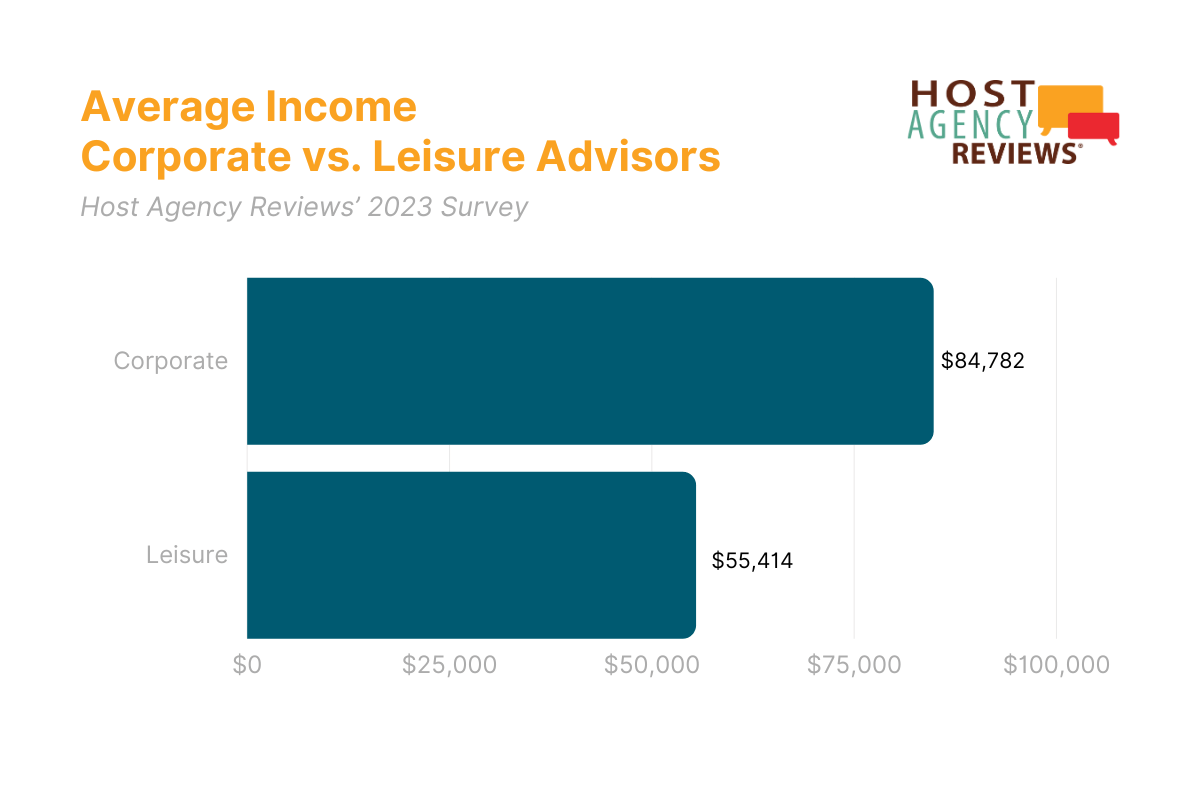
Do you have an interest in becoming a Corporate Travel Agent? You can sink your teeth into a few juicy tidbits of info here:
- HAR’s article, Breaking into corporate travel
- Our podcast interview (below) with corporate agent Karen Hurlbut:
- A podcast interview with entertainment travel specialist Molly Williams who moves bands around the world:
Travel Managers
Looking ahead on the corporate travel agent career trajectory, Travel Manager/Supervisory positions start with a much higher baseline.
Business Travel News (BTN) report on Travel Managers/Supervisors' salary cover people working for corporate entities as an in-house advisor (not working for a travel agency). The overall average for a corporate travel manager salary registered at $128,439.
Nice, huh?! You can make some pretty good money as a corporate travel agent. :)
Beyond Travel Agent Salaries, Why Advisors Love Their Jobs
We've looked at travel agent salaries from a whole bunch of different perspectives. You made it through the spinning, twirling madness of data acrobats.
HAR’s research reports offer a ton of info on travel agent salaries. But ultimately, how much you make as a travel agent depends on a lot of factors, including:
- what type of advisor you are (corporate, leisure, employee, self-employed, etc.),
- what type of travel you sell,
- your experience level,
- hours worked,
- and all that other fun stuff!
While naming one number for a travel agent salary is impossible, there is one thing that is consistent among all the surveys: the majority of travel advisors are happy with their career choice.
HAR’s 2023 Hosted Travel Advisor Survey indicated that 95% of advisors would choose to become a travel advisor again if given the choice.
Corporate travel managers taking BTN’s survey were a bit more lukewarm in response to travel agent income satisfaction. 48% of travel managers reported their earnings were equitable, 12% felt “well compensated,” and 41% felt their salary was “low for responsibilities.”

And here’s the thing to remember about being in the travel industry. It goes beyond dollars.
Many advisors report that the primary benefit of working in travel is rooted in a personal passion for travel and the ability to share their love of travel with others.
Additionally, advisors often have access to great travel experiences they may not otherwise via familiarization trips or travel advisor rates for those who reach sales thresholds or meet requirements.
In general, positions in travel may offer a lower salary than other industries. But here’s the kicker, occupations in other industries don't include travel benefits and working in travel !
Interested in Becoming an Advisor? Here’s Where to Start
This leads us to the question of what type of travel advisor career you’d like to pursue.
Do you want to become a self-employed travel advisor so you can have the creativity to book the type of travel you love and the flexibility to be your own boss? Or do you want the structure of 9-5 with benefits and the income security of a travel advisor employee?
Employees at a travel agency may have a salary cap if their compensation model is strictly hourly/salary (about 42% of employees), but for those who own their own business, the sky's the limit. Plus, it's hard to put a price on visiting beautiful places, touring the newest properties , and the freedom and flexibility to work anywhere that goes with owning your own home-based travel agency.
How do you decide what type of travel you want to sell? Do you want to do leisure or corporate? If you do leisure, which types of travel agent niches are the most lucrative? If you go the corporate route, how do you break into booking business travel ?
💕 If you're thinking of joining the industry, here are a few resources you're gonna love: 💕
- Starting a travel agency from home
- Free 15-page travel agency business plan template
- HAR's nifty course on how to start a travel agency!

We’re here to help! If you have questions about what route to take or how to get started, give us a holler in the comments or reach out to us at [email protected] .
- https://www.bls.gov/oes/current/oes413041.htm ↩
- Source: https://www.bls.gov/oes/current/oes413041.htm ↩
- Source: Hosted Advisor Report 2023 ↩
About the Author

Steph grew up in the travel industry, helping on and off with her mom's homebased travel agency. She has worked with thousands of agents in her role as a former host agency director before leaving in 2012 to start HAR. She's insatiably curious, loves her pups Fennec and Orion, and -- in case you haven't noticed -- is pretty quirky and free-spirited.
If you’re looking for Steph, she leaves a trace where ever she goes! You can find her on Facebook, Instagram, LinkedIn (her fav) and Pinterest as 'iamstephly'. 🙂 You can also catch her on her Substack, Bumblin' Around, where she writes on things outside the world of HAR.

- Still Exploring
- Travel Agent Basics
How much commission do travel agents really make?
- October 4, 2023
- Pickles Travel Network
As you start or continue on the exciting journey of planning your clients’ dream getaways, you are likely to encounter the invaluable assistance of travel agents. Travel agents are experts in “all things travel” and not only help navigate the complexities of trip planning but also earn their income through commissions from various travel-related bookings.
Let us take you on a detailed tour of the commission landscape for travel agents.
Together, we will shed light on the typical and high/low range commission amounts for hotels, cruises, airfare, tours, and other avenues you may not have considered — yet.
Accessible Travel
Travel agents specializing in accessible travel have a unique niche that caters to individuals with disabilities or special needs. Commission rates in this niche can vary widely depending on the suppliers and the level of specialization they offer. For example, suppliers like Wheel the World may offer a commission rate of 3%, which reflects their commitment to accessibility. On the other hand, Kingdom Strollers , which provides specialized stroller rental services for families with young children, may offer a higher commission rate of 15%. Accessible travel agents should explore partnerships with various suppliers to ensure their clients’ needs are met.
Airfare Bookings
Airfare is a fundamental aspect of travel, and travel agents can assist you in securing the best flight options. However, commissions for airfare can be more intricate, as they often depend on the agreements travel agencies have with airlines.
Typical Commissions: Commission rates for airfare can be relatively modest, ranging from 1% to 3% of the total ticket price. In some cases, travel agents might receive a fixed fee per booking instead.
High/Low Range: Domestic flights and economy class tickets usually offer lower commissions, while international flights and premium class tickets can yield higher commissions.
Airline Consolidators, on the other hand, have a more “Build Your Own Commission” structure. So, it is pertinent to know with you are working with as a travel agent.
Cars, RV, and Transfers
Travel agents can expand their services beyond traditional bookings to include ground transportation options like car rentals, RV rentals, and transfers. These services can be particularly beneficial for clients who want flexibility and convenience during their travels. The commissions offered by suppliers in this category can vary based on factors such as the type of transportation, location, and the supplier’s agreement with the travel agent. Here’s a breakdown of these opportunities:
Car Rentals: Travel agents can earn commissions when they book car rentals for their clients. Commission rates for car rentals often fall within the range of 5% to 17%. The exact rate can depend on the rental agency and the volume of bookings made through the travel agent. Agents may consider establishing partnerships with major car rental companies as well as local or specialty providers to offer a wide range of options to clients.
RV Rentals: For clients seeking a unique travel experience, RV rentals are an exciting option. Commission rates for RV rentals typically follow a similar range, ranging from 5% to 17%. Travel agents can work with RV rental companies to provide clients with options for various sizes and styles of RVs, allowing them to embark on memorable road trips.
Transfers: Transfers, such as airport shuttle services or private transportation to and from accommodations, are essential components of a seamless travel experience. Suppliers offering transfer services often provide commission rates in the 5% to 17% range. By offering transfer services, travel agents can ensure their clients have a hassle-free journey from arrival to departure.
Cruise Bookings
Cruises offer travelers an opportunity to explore multiple destinations in one trip, and travel agents are there to guide cruisers through the vast ocean of cruise options. Commissions for cruise bookings can be quite diverse, influenced by the cruise lines’ policies and the complexity of the booking.
Typical Commissions: On average, travel agents can earn commissions ranging from 10% to 18% of the total cruise fare. This means that for every cruise package booked, the travel agent has the potential to receive 10 to 16 cents on every dollar spent.
High/Low Range: High-end cruises and luxury liners like AmaWaterways may offer travel agents higher commissions, while budget or discounted cruises might provide lower rates. Disney, Holland America, and Princess tend to typically fall in the mid-level commission range, around 10%.
Specialized transportation suppliers, such as Yachtico rentals, may offer 3 to 5%.
Excursions and Tour Packages
For travelers seeking curated experiences and guided adventures, travel agents may offer assistance in booking tour packages. Commissions for tour packages can fluctuate widely, influenced by the tour operator’s policies and the complexity and exclusivity of the tour.
Typical Commissions: Commissions for tours typically fall in the range of 10% to 14% of the total package price – and on rare occasions, up to 20%. This means that your travel agent may earn 10 to 20 cents on every dollar spent on the tour, or more.
High/Low Range: Specialized or high-end tours, such as adventure or luxury excursions, may offer travel agents’ commissions at the higher end of the scale, while budget-friendly or standard tours might provide lower rates.
Hotel Bookings
When it comes to booking accommodations, travel agents can be a treasure trove of knowledge and resources. They assist in finding the perfect hotel that suits your clients’ preferences and budget. For their services, travel agents typically earn commissions, which can vary based on factors like the hotel’s size, type, and location.
Typical Commissions: The standard commission rate for hotel bookings falls in the range of 8% to 15% of the total room cost. This means that for every dollar the client spends on accommodation, a travel agent may earn anywhere from 8 to 15 cents as a commission.
High/Low Range: Keep in mind that commission rates can fluctuate. Luxury or boutique hotels may offer lower commissions, often closer to the lower end of the scale, while larger chain hotels, particularly for group bookings, might offer commissions at the higher end. Places like Palace Resorts usually offer a 10% commission, and luxury entities such as Excellence Collection , and Belmond , offer various commission rates. The better the relationship a travel agent forms with these luxury suppliers, the higher the probability of higher commission rates will be!
Specialized suppliers
Suppliers like Atlantis Events and VACAYA cater to niche travel markets. These suppliers often offer commission rates in the range of 10% to 14% to travel agents who bring them business. Travel agents who focus on specialized markets can develop expertise in serving this unique clientele and build strong relationships with specialized suppliers to earn competitive commissions while providing tailored experiences to their clients.
Travel Insurance
In 2023, travel insurance is more essential than ever, and travel agents can earn commissions by offering these policies to their clients. The commission rates for travel insurance can range from 10% to 36%, depending on the insurance provider and the specific policy sold. Companies like Allianz Partners and Travelex are known for offering competitive commission rates. Travel agents have an opportunity to educate their clients about the importance of travel insurance and assist them in selecting the right coverage, thus earning commissions while providing valuable protection for travelers.
Miscellaneous Travel
Travel agents who offer exclusive packages to destinations like C Lazy U Ranch or specialize in wine travel, such as Taste Vacations , can earn commissions of around 10% for bookings made through them. These niche travel experiences often attract clients seeking unique and personalized adventures. By collaborating with these specialized providers, travel agents can offer their clients memorable and customized travel experiences while earning commissions.
Rail Travel
Rail travel is a less common but fascinating niche within the travel industry. Suppliers like Belmond Trains may offer gross pricing that can include a 15% commission, providing travel agents with an opportunity to earn commissions while promoting rail travel options. Building relationships with railway transportation suppliers can be advantageous for travel agents looking to diversify their offerings and provide clients with alternative and eco-friendly travel options.
In addition to commission rates, travel agents have the option to earn money through service or planning fees.
Service or planning fees are a subject that often sparks debate within the travel agent community. Charging a service fee is a way for agents to compensate themselves for the extensive research, skills, and expertise they invest in planning travel experiences. It is crucial for agents to approach this aspect strategically to ensure it is well-received by clients.
- First and foremost, travel agents should never apologize for their planning fees. Apologizing may inadvertently communicate desperation, which can deter potential clients. Clients prefer working with successful agents who confidently stand by the value they offer.
- Secondly, it is important to justify the service fee. Explaining the reasoning behind the fee, such as investing in ongoing education, designing personalized itineraries, or prioritizing client needs over commission rates, can help clients understand the value they receive in return.
- Lastly, agents have the option to introduce the fee quietly without a public announcement, particularly if they are new to the travel industry and do not have an extensive client base. Service fees can be a way for travel agents to establish their worth, maintain financial sustainability, and continue providing exceptional travel planning services to their clients.
In the realm of travel planning, travel agents are not only guides but also rely on commissions for their livelihood.
By having a grasp of the commission structure for various travel categories, clients are empowered to make well-informed decisions when collaborating with travel agents, and, thus, travel agents are able to establish fair fees for their services. A travel agent’s expertise can enrich a client’s overall travel experience, ensuring that their dream vacation becomes a reality.
Remember that travel agents are valuable partners in creating hard-to-forget memories. Travel agents’ commissions reflect the effort and expertise they invest in planning trips, helping their clients embark on journeys filled with adventure, relaxation, and exploration.
Meet Pickles Travel Network: The Host Agency That Makes It Easy to Start and Scale Your Travel Business
Whether you’ve just started your travel agent journey, or you’ve been on it… Pickles Travel Network has the tools and resources to help grow your business. Unlike other host agencies, we believe in letting our members choose what works best for their business. Pickles Travel Network allows you to choose your commission rate, along with whether or not you want to charge planning fees. As a member, you’ll receive instant access to our list of suppliers, several marketing platforms and monthly coaching/trainings.

A Travel Agent’s Guide to Crafting Culinary Experiences
Elevate travel itineraries with unforgettable culinary experiences, enriching your clients’ journeys with the flavors and traditions of each destination.

Empowering Your Clients: Safety Tips and Destinations for Solo Female Travelers
Equip yourself with the essential insights to confidently advise solo female travelers on safety measures and ideal destinations.

8 Reasons Choosing the Right Host Agency is Important for Travel Agents
Choosing the right host agency is the cornerstone of success for travel agents, providing access to exclusive suppliers, comprehensive training, and invaluable support services.

How to answer the question “Do I really need a travel agent?”
When someone questions the need for a travel agent, it’s crucial to emphasize these key benefits to pave the way for your success.

8 Ways to Stay Up to Date with Travel Trends as a Travel Agent
Staying updated on travel trends and destination information is essential for travel agents to thrive in the competitive travel industry.

Family Travel Planning: Everything You Need to Know as a Travel Agent
Plan unforgettable family vacations for your clients with these essential strategies and insights in family travel planning.
Hours of Operation
Mon - fri: 9am - 5pm ct.

©2022 Pickles Travel Network
4261 EAST UNIVERSITY DRIVE, SUITE 30-505 PROSPER, TX 75078
Seller of Travel: CA #2152037-50 | FL #ST43007 | WA #604-994-859
IATA | CLIA Membership
Ptn iatan code: 45769253, ptn clia number: 00032299.
When you enroll with suppliers, you must use PTN’s codes to receive a commission from us. Want to sign up for your own CLIA or IATA numbers for exclusive travel benefits? See below.
Get your own IATA/IATAN ID Card:
The IATA/IATAN ID Card is the industry-standard credential to identify bona fide travel professionals. Key benefits include access to concessionary incentives from industry suppliers. Just added, the IATA MemberPerks program provides cardholders with daily savings at over 300,000 merchants across North America.
To be eligible, you must be registered with IATAN under PTN’s IATA number 45769253, working a minimum of 20 hours per week and earning a minimum of $5,000 per annum in commissions. You’ll need to send PTN a support ticket asking for approval. Once approved, we will send you a PRIN # to allow you to register with IATAN and ask for an ID card.
Get your own CLIA EMBARK ID:

Obtain a CLIA EMBARC ID for travel discounts and FAM (Familiarization) trips. Join CLIA as an Individual Agent Member, under Pickles Travel Network CLIA #00032299.
Once you’ve registered, submit a support ticket to let us know, and we will approve your registration.
Please select the option that best describes you for more information.

How Do Travel Agents Make Money: A Clear Explanation
- March 27, 2024
- Travel Agency Software

Table of Contents
How do travel agents make money? Travel agents earn through commissions, service fees, travel packages, and partnerships with travel providers.
Travel agents are professionals who help travelers plan, book, and manage their trips. While many people assume that travel agents work on commission, the reality is that there are several ways that travel agents make money. In this article, we’ll explore the different income streams available to travel agents, as well as the challenges and opportunities of working in the travel industry.

Understanding the Travel Agency Business Model is key to understanding how travel agents make money. Travel agents typically work on a commission basis, which means that they earn a percentage of the total cost of the trip they book. However, this is not the only way that travel agents can make money. Some travel agents charge a fee for their services, while others earn money through selling travel insurance or other add-ons. It’s important to note that not all travel agents work in the same way, and the income streams available to them can vary depending on their business model.
Key Takeaways:
- Travel agents can make money through commissions, fees, and selling add-ons like travel insurance.
- The travel industry is constantly changing, presenting both challenges and opportunities for travel agents.
- To build a successful career as a travel agent, it’s important to stay up-to-date on industry trends and regulations.
Understanding the Travel Agency Business Model
Travel agents are professionals who help travelers plan and book their trips. They work with various suppliers in the travel industry, such as airlines, hotels, and tour operators, to provide their clients with the best options for their needs and budget. But how do travel agents make money? Here are the main ways travel agents earn their income:
Commission-Based Earnings
Commission is the most common way travel agents make money. When a travel agent books a trip for a client, they receive a commission from the supplier, such as an airline or hotel. The commission rate varies depending on the supplier and the type of travel product being booked. For example, airlines typically pay a commission of around 5-10% on the base fare of a ticket, while hotels may pay a commission of 10-20% on the room rate.
Service Fees and Consultation Charges
In addition to commissions, some travel agents also charge service fees or consultation charges. These fees are typically charged for more complex or customized itineraries that require more time and effort to plan. Service fees can range from a flat rate to a percentage of the total trip cost. Travel agents who specialize in luxury or high-end travel may also charge consultation charges for their expertise and access to exclusive travel products.
Markup on Travel Products
Another way travel agents make money is by marking up the price of travel products they sell. This means that they add a certain percentage or amount to the base price of a travel product, such as a flight or hotel room, and sell it to their clients at a higher price. This markup can vary depending on the travel agent and the type of product being sold.
It’s important to note that travel agents are required to disclose their earnings to their clients. This helps ensure transparency and helps clients understand how their travel agent is compensated for their services.
Overall, the travel agency business model is based on building relationships with suppliers and providing valuable services to clients. By understanding how travel agents make money, travelers can better understand the value of working with a travel agent and make informed decisions about their travel plans.
Here is a helpful resource for more information on how travel agents make money.
Different Types of Travel Agents
Travel agents can work in various settings and have different business models. Here are the most common types of travel agents:
Storefront Travel Agencies
These travel agencies have a physical location where customers can walk in and speak with a travel agent. Storefront travel agencies often have a team of agents who specialize in different types of travel, such as cruises, adventure travel, or luxury vacations. They may also offer additional services, such as travel insurance or visa assistance.
Storefront travel agencies typically earn money through commissions from suppliers, such as airlines, hotels, and tour operators. They may also charge service fees for certain types of bookings or for personalized travel planning.
Home-Based Travel Agents
Home-based travel agents operate their business from their home office. They often have lower overhead costs compared to storefront travel agencies, which can result in lower prices for their clients. Home-based travel agents may specialize in certain types of travel or destinations, and they may work independently or as part of a larger network.
Like storefront travel agencies, home-based travel agents earn money through commissions and service fees. However, they may also have more flexibility in setting their commission rates and fees.
Independent Travel Agents
Independent travel agents are self-employed and work on their own. They may have their own website or social media presence to market their services. Independent travel agents often have extensive knowledge of a particular destination or type of travel, which can be valuable for clients seeking specialized advice.
Independent travel agents typically earn money through commissions and service fees, and they may also charge consulting fees for their expertise.
Online Travel Agencies
Online travel agencies (OTAs) operate entirely online and allow customers to book travel arrangements through their website or mobile app. OTAs often offer a wide range of travel options, including flights, hotels, rental cars, and vacation packages. They may also offer additional services, such as travel insurance or 24/7 customer support.
OTAs earn money through commissions from suppliers and service fees. They may also charge convenience fees for certain types of bookings or for personalized travel planning.
According to a report by Statista, the global online travel booking market is expected to reach $817 billion by 2023, indicating the growing popularity of online travel agencies.
Overall, travel agents can earn money through a variety of sources, including commissions, service fees, and consulting fees. By specializing in certain types of travel or destinations, travel agents can provide valuable expertise and personalized service to their clients.
For more information about the different types of travel agents, you can visit Travel Agent Central .
How Do Travel Agents Make Money
Travel agents generate revenue through various income streams. In this section, we will discuss the three primary income streams for travel agents : Travel Product Sales, Group and Corporate Travel, and Specialized Travel Services.
Travel Product Sales
Travel agents earn commissions by selling travel products such as flights, cruises, vacation packages, tours, and travel insurance. The commission rate varies depending on the product and the supplier. For instance, a travel agent might earn a 10% commission for booking a flight, but only a 5% commission for booking a vacation package.
To maximize their earnings, travel agents often specialize in a particular type of travel product, such as luxury travel or niche travel. By focusing on a specific market, they can develop expertise and build relationships with suppliers, which can lead to higher commissions and better deals for their clients .
Group and Corporate Travel
Group and corporate travel can be a lucrative income stream for travel agents. They can earn commissions by booking group travel for weddings, family reunions, and other events. Corporate travel, on the other hand, involves booking travel for business clients, which can include flights, hotels, and car rentals.
Travel agents who specialize in group and corporate travel often have to negotiate with suppliers to get the best deals for their clients. They may also have to handle complex itineraries and make last-minute changes, which requires excellent organizational skills and attention to detail.
Specialized Travel Services
Travel agents can also earn money by offering specialized travel services, such as destination weddings, adventure travel, and luxury travel. These services require a higher level of expertise and customization, which can lead to higher commissions and fees.
For instance, a travel agent who specializes in luxury travel might offer customized itineraries, private tours, and exclusive access to high-end hotels and restaurants. They may also charge a consultation fee for their services, which can range from a few hundred to several thousand dollars.
In conclusion, travel agents generate revenue through various income streams, including travel product sales, group and corporate travel, and specialized travel services. By specializing in a particular market and offering customized services, travel agents can maximize their earnings and provide added value to their clients. To learn more about how travel agents make money, check out this resource .
Building a Successful Travel Agent Career

Becoming a successful travel agent takes more than just booking trips for clients. It requires a combination of education, certification, marketing, and networking skills. Here are some tips on how to build a successful career as a travel agent.

Education and Certification
To become a travel agent, one must have a high school diploma or equivalent. However, having a degree in travel and tourism or a related field can give an edge over the competition. Many colleges and universities offer programs in travel and tourism that provide students with the knowledge and skills necessary to succeed in the industry.
In addition to education, obtaining certification can increase credibility and expertise. The most recognized certification for travel agents is the Certified Travel Associate (CTA) or Certified Travel Counselor (CTC) offered by The Travel Institute. These certifications require passing an exam and completing continuing education courses.
Developing a Niche
Developing a niche is essential for travel agents to stand out in a crowded market. A niche can be a specific destination, type of travel, or demographic. For example, a travel agent can specialize in luxury travel, adventure travel, or family travel.
Once a niche is established, it is easier to target a specific audience and provide tailored services. This can lead to higher commissions and repeat business.
Marketing and Client Acquisition
Marketing tools such as social media, email marketing, and a website are essential for travel agents to reach potential clients. A well-designed website with a blog and testimonials can showcase expertise and credibility.
Networking with other travel agents, business owners, and industry professionals can also lead to client referrals. Attending trade shows, conferences, and events can provide opportunities for networking and learning about new products and destinations.
Networking with Travel Suppliers
Travel agents must establish relationships with travel suppliers such as airlines, hotels, and tour operators. These relationships can lead to exclusive deals and commissions.
Attending supplier events, familiarization trips, and webinars can provide opportunities to learn about new products and build relationships with suppliers. It is also important to stay up-to-date with industry news and trends to provide clients with the best possible experience.
In conclusion, building a successful travel agent career requires a combination of education, certification, developing a niche, marketing, and networking skills. By following these tips, travel agents can establish themselves as experts in the industry and provide clients with exceptional service. For more information on becoming a travel agent, visit The Travel Institute.
Challenges and Opportunities in the Travel Industry

The travel industry has always been dynamic, but the pandemic has brought about unprecedented challenges. Travel agents have had to adapt to the changing landscape and find new opportunities to stay afloat.
Impact of the Pandemic
The pandemic has had a significant impact on the travel industry. With restrictions on travel and uncertainty around safety, many people have put their travel plans on hold. This has resulted in a significant drop in revenue for travel agents.
However, with the rollout of vaccines and the easing of restrictions, there is hope that the industry will bounce back. Travel agents who can navigate the changing regulations and provide safe and flexible travel options are likely to come out ahead.
Adapting to Changing Travel Trends
The pandemic has also brought about changes in travel trends. People are looking for more remote and secluded destinations, and there is a growing interest in eco-tourism and sustainable travel.
Travel agents who can adapt to these changing trends and offer unique and personalized travel experiences are likely to succeed. This requires a deep understanding of the market and the ability to provide tailored recommendations based on the client’s preferences.
Leveraging Technology and Social Media
Technology and social media have always been important in the travel industry, but the pandemic has accelerated their importance. Travel agents who can leverage these tools to provide virtual tours, online booking, and personalized recommendations are likely to succeed.
Social media platforms like Instagram and Facebook are also valuable tools for marketing and building brand awareness. Travel agents who can build a strong social media presence and engage with their audience are likely to attract more clients.
In conclusion, the travel industry is facing unprecedented challenges, but there are also opportunities for those who can adapt and innovate. Travel agents who can provide safe, flexible, and personalized travel experiences while leveraging technology and social media are likely to succeed in the post-pandemic world.
Here is a great resource on how travel agents are adapting to the new travel landscape.
Compensation and Benefits for Travel Advisors

Salary and Commission Structures
Travel advisors can earn income through a variety of compensation structures. Many travel agencies offer a base salary, while others operate on a commission-only basis. According to a survey by ASTA, the average annual salary for a travel advisor in the United States is $44,690. However, this can vary based on factors such as experience, location, and the agency’s commission structure.
Commission-based compensation is common in the travel industry, with advisors earning a percentage of the total cost of the trip they book. This can range from 8% to 20% depending on the type of travel, such as cruises or luxury trips. Some agencies also offer bonuses or incentives for reaching certain sales goals.
Perks and Industry Rewards
In addition to income, travel advisors can receive a variety of perks and rewards. Many agencies offer travel discounts or free trips for their advisors to experience new destinations and products. Some suppliers also offer rewards programs for top-performing advisors, such as free hotel stays or upgrades.
Industry associations such as ASTA and CLIA also offer rewards and recognition programs for travel advisors. These can include awards for top sales, certifications, and other achievements.
Host Agency Support
Many travel advisors operate as independent contractors under a host agency. Host agencies provide support services such as back-office support, marketing, and training. In exchange, they take a percentage of the advisor’s commission.
Host agencies can also offer additional benefits such as access to preferred suppliers, group buying power, and insurance coverage. This can help advisors increase their revenue and provide better service to their clients.
Overall, travel advisors have the potential to earn a good income while enjoying a variety of perks and rewards. By partnering with a reputable host agency and focusing on building strong relationships with clients, travel advisors can build a successful and fulfilling career in the travel industry.
Here is a link to ASTA’s Travel Advisor Salary Survey for more information on travel advisor salaries.
Legal and Regulatory Considerations

Licensing and Accreditation
Travel agents are required to obtain licenses and accreditation from the relevant government agencies and industry associations. The licensing fees vary depending on the jurisdiction and the type of travel agency. For instance, in the United States, travel agencies that sell air tickets must be registered with the Department of Transportation and pay an annual fee of $50.
Accreditation is a voluntary process that travel agents can undergo to demonstrate their professionalism and commitment to ethical standards. Accreditation is granted by industry associations such as the American Society of Travel Agents (ASTA) and the International Air Transport Association (IATA). Accreditation requires agents to meet certain criteria such as financial stability, customer service, and ethical standards. Accreditation numbers are used to identify accredited agents and can be verified on the association’s website.
Financial Transactions and Direct Deposit
Travel agents earn commissions from travel suppliers such as airlines, hotels, and car rental companies. The commissions are paid directly to the travel agency’s bank account through direct deposit. Direct deposit is a secure and convenient way for travel agents to receive payments from suppliers.
Travel agents are also responsible for collecting payments from customers and remitting them to the suppliers. This requires travel agents to have a system for tracking payments and ensuring that they are properly accounted for. Travel agents must also comply with anti-money laundering regulations and report suspicious transactions to the relevant authorities.
Customer Service and Ethical Standards
Travel agents are expected to provide excellent customer service and adhere to ethical standards. This includes providing accurate and timely information to customers, resolving complaints in a timely manner, and protecting customers’ personal and financial information.
Travel agents must also comply with industry codes of conduct and regulations. For instance, in the United States, travel agents must comply with the Code of Ethics of the American Society of Travel Agents (ASTA). The code requires agents to act with integrity, provide accurate information, and protect customers’ interests.
In conclusion, travel agents must comply with legal and regulatory requirements, provide excellent customer service, and adhere to ethical standards. By doing so, travel agents can earn commissions from travel suppliers and build a loyal customer base. For more information on the legal and regulatory considerations for travel agents, visit the ASTA website.
The Future of Travel Advising

As the travel industry continues to evolve, travel advisors must also adapt to the changing landscape. The future of travel advising is bright, with emerging trends and new technologies opening up new opportunities for travel advisors to provide personalized travel experiences to clients.
Emerging Trends in Travel
One emerging trend in travel is the increasing demand for sustainable travel options. Many travelers are now seeking out eco-friendly accommodations and activities, and travel advisors can help clients find these options. Another trend is the rise of experiential travel, where travelers are looking for unique and authentic experiences that go beyond the typical tourist destinations. Travel advisors can help clients plan these types of trips by recommending off-the-beaten-path destinations and activities.
The Role of Personalization
Personalization is becoming increasingly important in the travel industry, and travel advisors can provide this by tailoring trips to individual clients’ preferences and needs. By getting to know their clients and understanding their travel goals, travel advisors can create customized itineraries that meet their clients’ specific needs. This can include everything from recommending specific hotels and activities to arranging transportation and dining reservations.
Growth of Remote Travel Advising
Remote travel advising is also on the rise, as more people are turning to virtual travel advisors for their travel planning needs. This allows travel advisors to work with clients from anywhere in the world, and can be especially beneficial for clients who are unable to meet in person. Remote travel advising can also be more cost-effective for clients, as they may not have to pay for travel expenses for their advisor.
Overall, the future of travel advising is bright, with new trends and technologies providing opportunities for travel advisors to provide personalized travel experiences to clients. By staying up-to-date with emerging trends and embracing new technologies, travel advisors can continue to thrive in the ever-changing travel industry.
Source: Travel Market Report
Frequently Asked Questions

What are the primary sources of income for travel agents?
The primary sources of income for travel agents are commissions and service fees. Commissions are paid by travel suppliers, such as airlines, hotels, and cruise lines, for bookings made by the travel agent on behalf of their clients. Service fees, on the other hand, are charges that travel agents impose on their clients for the services they provide, such as itinerary planning, ticketing, and travel insurance.
What is the average commission percentage for travel agents on cruises?
The average commission percentage for travel agents on cruises varies depending on the cruise line and the specific itinerary. According to Cruise Lines International Association (CLIA), the average commission percentage for travel agents on cruise bookings is around 10-15%.
In what ways do travel agents earn from hotel bookings?
Travel agents can earn commissions on hotel bookings made through their agency. They can also earn money through markups, which is the difference between the price they pay for the hotel room and the price they charge their clients. Additionally, some travel agents negotiate special rates with hotels, which they can then offer to their clients at a discounted price.
Can travel agents earn a substantial income without charging fees?
Yes, travel agents can earn a substantial income without charging fees. While service fees can be a significant source of income for travel agents, they are not the only way to make money. By focusing on high-value bookings and building strong relationships with travel suppliers, travel agents can earn substantial commissions without charging fees.
How do independent travel agents receive their compensation?
Independent travel agents receive their compensation in the form of commissions and service fees. However, unlike traditional travel agents who work for a travel agency, independent travel agents are responsible for finding their own clients and building their own business.
What factors influence a travel agent’s earnings per booking?
Several factors can influence a travel agent’s earnings per booking, including the type of travel being booked, the travel supplier being used, and the level of service being provided. For example, luxury travel bookings typically have higher commissions than budget travel bookings. Additionally, some travel suppliers offer higher commission rates to travel agents who book a certain volume of business with them.
For more information on how travel agents make money, check out this article from Forbes: How Travel Agents Make Money .
Compare hundreds of Travel Agency Software in our Software Marketplace
Discover the best software tools for your business!
Our recommended apps.

Travel powers progress. Amadeus powers travel. Amadeus’ solutions...
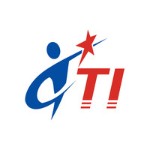
Since 2005, TI infotech has been instrumental in...

Key benefits and Technical features of our TMS:...
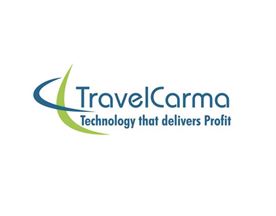
TravelCarma is a global travel technology brand, with...
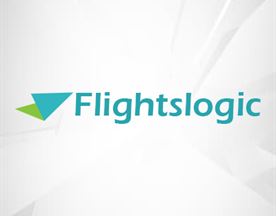
FlightsLogic is a recognized leader in the travel...

Travelaps.com is an online travel portal solution for...
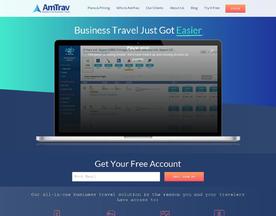
Whether you're the traveler, executive assistant, travel manager,...

Booking activities online should be as easy as...
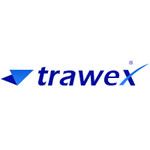
Trawex is a Travel Technology Company and we...
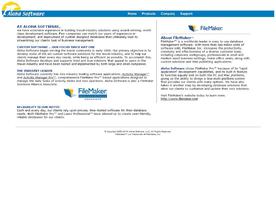
AT ALOHA SOFTWARE, we have extensive experience in...

Learn How to Ask for Payment Professionally in Messages Now
How to ask for payment professionally in messages? Start with a friendly greeting, clearly state the payment details, express gratitude, and end with a polite

Business Strategist: A Key Player in Corporate Success
What is a business strategist? A business strategist develops plans to enhance company performance and competitive positioning. A business strategist is a professional who helps

Web Design Services for Small Business: Enhance Online Presence
What are web design services for small business? Web design services for small businesses craft custom websites to boost visibility and engagement online. Web design

CRM eLeads: Streamlining Your Lead Management Process
What are CRM eLeads? CRM eLeads are digital tools that enhance customer relationship management by efficiently tracking and nurturing leads to boost sales. CRM eLeads
Privacy Overview
- Guest Posts
8 Best Commission Ideas for Travel Agents to Revolutionize Travel Sales in 2024
8 best commissions for travel agents to boost sales, motivate agents, and ensure success in the dynamic world of travel. Dive in to elevate your earnings.
Table of Contents
Every travel agent knows the thrill of planning the perfect getaway for clients. However, planning a gateway that would satisfy the client while keeping them on the edge with adventurous deals is not easy.
As with any job, there are days when motivation might wane. For those in charge of travel agencies or teams, the challenge lies in selling destinations and keeping agents inspired and driven.
In such an instance, a commission plan comes as one of the driving forces for travel sales agents. A study by IRF has revealed that a properly structured compensation plan can help boost employee performance by 44%.
This blog post'll explore easy-to-understand and innovative commission ideas that motivate travel agents, ensuring they're always excited, engaged, and eager to deliver their best. Ready to sprinkle some magic on your commission system?
Let’s get started!
What is the average commission for a travel agent?
Travel agents can earn their income in various ways, including hourly wages, salaries, commissions, or a combination thereof. Commission rates often vary based on several factors, such as the agency's agreement with suppliers, the type of booking (e.g., flight, hotel, tour package), and the complexity of the travel arrangements.
On average, here's a general breakdown of commission rates for travel agents:
- Airline tickets : Most airlines no longer pay commissions to travel agents, but there are exceptions, especially when dealing with international flights or specialized bookings. When commissions are paid, they're typically between 1% and 2%.
- Hotels : Hotel bookings can offer commissions ranging from 5% to 10% or even more, depending on the hotel and the deal the agency has with them.
- Cruises : Cruises tend to have a higher commission rate, usually between 10% and 16% of the booking's total value.
- Tour packages : Commission for organized tour packages can vary widely, but rates from 10% to 20% are common.
- Rental cars : Car rental commissions are typically lower, often around 5%.
- Travel insurance : Commissions for travel insurance can be between 15% and 40% of the premium's cost.
It's essential to note that these are average figures, and actual commission rates can vary. Travel agents may also charge clients service fees, especially for more complex travel planning or when booking components that don't offer commissions. Additionally, larger agencies with more bookings might negotiate better supplier commission rates.
How do travel agents make money?
Travel agents have various revenue streams as intermediaries between travelers and travel service providers. Their earnings often blend commissions, fees, and other incentives. Here's a breakdown of how travel agents typically make money:
- Commissions : This is the primary way many travel agents earn. When an agent books a hotel, cruise, tour, or other travel services, they receive a commission from the provider. This commission is a percentage of the cost of the booking.
- Consultation fees : Some agents charge for their expertise in planning and organizing complex trips, especially if it involves bespoke or luxury services. This is common among agents specializing in niche markets like luxury, adventure, or destination-specific travel.
- Vendor incentives : Sometimes, travel vendors offer additional incentives or bonuses for selling certain products or reaching booking quotas. These can be in the form of cash bonuses or free travel, which agents can use for personal trips or as familiarization trips to sell the experience better to clients.
- Mark-ups : In some instances, especially when dealing with tours or packages they've crafted, agents might add a markup to the net price they get from a supplier. This difference between the net price and the selling price becomes their earnings.
- Referral fees : Some agents earn money by referring clients to specialists or other service providers. For example, if a client needs specialized services outside of the agent's expertise, the agent might refer them to someone who can help and earn a fee for that referral.
- Annual bonuses : Depending on the travel agency's and vendors' agreement, some travel agents receive annual bonuses or incentives based on the volume or value of bookings throughout the year.
- Hosting events or classes : Some travel agents, especially those with deep expertise in specific areas, might host educational events or classes for travelers, earning money from entrance fees or sponsorships.
8 best commission ideas for travel agents to motivate them
Here are 8 best commission ideas for travel agents to motivate them and boost sales.
1. Tiered loyalty commission
Travel agents are rewarded with increased commission percentages based on the number of repeat clients they bring or maintain. This structure promotes agent dedication to high-quality service, motivating them to ensure clients keep returning and increasing their commission over time.
Marriott International, through its " Marriott Bonvoy" program , offers a stellar example of a tiered loyalty system in the travel sector. While primarily designed for guests, this program also benefits travel agents.

As guests frequent Marriott properties, they accumulate points, advancing through tiers like Member, Silver Elite, and Gold Elite, each offering unique perks. Having introduced clients to Marriott Bonvoy, travel agents often find these clients returning for repeat bookings at Marriott establishments, leading to consistent business.
Moreover, Marriott's "Hotel Excellence!" program trains agents to become "Hotel Sales Specialists," potentially offering them perks and special rates. While not a direct tiered commission for agents, the system encourages increased bookings, indirectly creating a tiered benefit system for them.
2. Experience-based rewards
Instead of a flat commission rate for all types of bookings, agencies offer a higher commission for selling "experiences" or niche travel packages. This could be anything from culinary tours, adventure sports holidays, and eco-tourism trips, to wellness retreats.
The idea is to encourage agents to sell richer experiences, which are often more profitable and lead to more satisfied customers.
One exemplary company in the travel sector that employs experience-based rewards for travel agencies is Four Seasons Hotels and Resorts. Recognizing agents' pivotal role in driving bookings, Four Seasons occasionally offers exclusive "fam" (familiarization) trips to their top-performing agents.
These trips aren't just about sightseeing; they provide agents a luxurious experience at the company's premier resorts and hotels.

The idea is simple: by immersing agents in the opulence Four Seasons offers, they are better positioned to sell these experiences to potential travelers. This hands-on approach ensures agents understand the brand's offerings intimately, allowing them to give genuine recommendations to their clients.
So, instead of just monetary rewards, the agents enjoy the luxury they promote, making their selling proposition all the more authentic.
3. Green travel incentives
As sustainable and eco-friendly travel grows in demand, agencies can offer higher commission rates for selling eco-friendly packages or accommodations. This motivates agents to promote green travel options and aligns the agency's operations with global sustainability efforts, appealing to a more environmentally-conscious clientele.
Intrepid Travel, a pioneer in responsible tourism, provides a compelling model of integrating green travel incentives within the travel industry. Driven by a commitment to sustainable and eco-friendly travel, Intrepid Travel doesn't just offer unique adventures to its clientele and incentivizes travel agents who promote these eco-conscious trips.
For instance, they might offer special recognition or bonus commissions for agents who prioritize bookings of their carbon-neutral tours or those who support local communities.
Additionally, by organizing educational trips for agents that showcase the importance of sustainable practices, Intrepid ensures that agents become ambassadors for green travel.
Such initiatives underscore the company's ethos: travel should be an experience for tourists and contribute positively to the planet and its inhabitants. By aligning agent incentives with this philosophy, Intrepid Travel makes a strong case for the intersection of business and environmental responsibility in the travel sector.
4. Dynamic commission based on feedback
Implement a system where part of the agent's commission is determined by client post-trip feedback. For every positive review or feedback form, the agent could earn an additional percentage on top of their base commission.
This emphasizes the importance of making a sale and ensuring the traveler has an exceptional experience from start to finish.
TripAdvisor , known primarily for its vast repository of traveler reviews and ratings, has also ventured into travel bookings and partnerships with travel agencies. Leveraging its core strength of user feedback, TripAdvisor has introduced a model where commissions can be influenced by the quality of experiences delivered by travel agents.

In this dynamic model, travel agents who consistently garner positive feedback and high ratings from travelers might receive higher commissions or preferential partnership terms. Conversely, agents with lower ratings might face reduced commissions until their service quality improves.
This system prioritizes the traveler's experience, ensuring that agents are incentivized to sell and provide top-tier service. By integrating real-time feedback into their commission structure, TripAdvisor reinforces the importance of customer satisfaction in the travel industry.
5. Sustainability commission
Travel agents can earn a commission by promoting sustainable travel options to their clients. This could include booking eco-friendly accommodations, recommending low-impact transportation, and suggesting activities that support local communities and the environment. Contiki , a travel company specializing in tours for young adults, demonstrates a commitment to group travel and sustainability. Recognizing the growing demand for responsible travel among younger generations, Contiki has developed tours that focus on sustainable and eco-friendly practices.

Contiki offers a "Group Sustainability Commission" for travel agents to promote this initiative and encourage bookings of these specialized tours. This means agents receive a premium commission when they organize larger group bookings for these eco-conscious tours than regular tours.
The initiative emphasizes the company’s dedication to sustainability and motivates agents to champion these green initiatives to potential travelers. Contiki is paving the way for a more sustainable future in the travel industry by intertwining the allure of group travel with a commitment to the environment.
6. Group travel loyalty commission
Travel agents can earn a commission on the initial group booking and the repeat business generated from group travelers. This commission could be tiered, increasing with each subsequent booking made by the same group or its members. Trafalgar , a long-standing operator in the guided holiday sector, has effectively utilized the Group Travel Loyalty Commission concept. Catering to diverse groups, from families to corporate outings, Trafalgar recognizes the logistical intricacies and enhanced value group bookings bring.
In response, they've set up a loyalty commission model where travel agents are rewarded more generously for recurring group bookings.

The idea is twofold: to acknowledge the efforts agents invest in orchestrating such complex arrangements and to incentivize the cultivation of repeat group business. As groups return year after year for new adventures, agents enjoy a progressive commission scale, reflecting both their clientele's volume and loyalty.
Through this model, Trafalgar ensures a steady flow of group travelers and fosters enduring relationships with the agents who make it all possible.
7. Experiential travel commission
Reward agents for curating and booking immersive, off-the-beaten-path experiences for travelers. This includes local homestays, artisan workshops, food tastings, or cultural exchange programs. Instead of just promoting popular tourist destinations, agents are incentivized to create a deeper and more authentic travel experience for their clients.
Intrepid Travel, known for its adventure and experiential travel tours, could offer a special commission program for agents who prioritize and successfully book such authentic travel experiences for clients. This encourages travel agents to focus on deeper cultural immersion and unique experiences over standard touristy options.
8. Long-stay booking commission
As the nature of work changes and more people become digital nomads or choose to work remotely from scenic destinations, there's a growing demand for longer stays (e.g., a month or more) in certain destinations.
Travel agents can earn a higher commission for long-term bookings, reflecting the value of securing accommodations and services for extended periods.
Black Tomato, a bespoke travel company, stands out for its focus on crafting unique, tailor-made journeys. Acknowledging the intricacy of these experiential trips, the company offers an "Experiential Travel Commission" to its agents.
Instead of traditional flat-rate commissions, agents are rewarded for the depth and creativity of the experiences they help design, such as private dinners in remote locales or immersive cultural activities. This approach motivates agents to elevate travel from mere sightseeing to truly transformative experiences.
These ideas cater to emerging travel trends and patterns, ensuring that travel agents are well-positioned to meet the evolving needs of modern travelers.
The future of travel agent commissions
The travel industry is continually evolving, as are commission structures for travel agents. With the rise of online booking platforms and direct bookings by consumers, some travel agents have faced challenges in maintaining their commission-based income.
However, many travelers still value the expertise and personalized service that travel agents provide, which ensures that commissions will remain a significant part of the industry.
Commission for travel agents is a crucial aspect of their income, allowing them to offer expert advice, personalized service, and added value to their clients. While the traditional commission model has evolved, travel agents continue to find creative ways to earn income, including through ancillary services and negotiated commission agreements.
Ultimately, the relationship between travel agents and their clients is built on trust, and commissions reflect agents' value to the travel experience. So, whether you're a traveler seeking expert guidance or a travel agent looking to thrive in the industry, understanding how commissions work is essential for a successful journey.
Top 20 Commission Tracking Software Solutions: A Comprehensive Comparison For 2024
Insurance agent commission rates: where do agents really make their money, unlock the biggest secret of engagement to retain your top performers..

-->Nagma Nasim -->
Nagma is a content writer who creates informative articles, blogs, & other engaging content. In her free time, you can find her immersed in academic papers, novels, or movie marathons.
Commission Payouts? Consider It Done!
Streamlined automation for peak performance. Achieve 95% faster commission processing now.
Quick Links
Sales Compensation | Cross Selling | Market Research | Sales CRM | Sales analytics | Sales management | Net salary | Data processing
Net Promoter Score | Sales Enablement | Indipendent Contractors | Enterprise resource planning | Sales quota | Sales engagement | Commission payout | Data integration in sales | Incentive management | Sales support | Sales gamification | Commission automation | Consultative selling | Sales team training | Sales commission | Revenue marketing | SAAS sales | Fair market value | Amortization | Platform as a service | Sales rewards | Sales forecasting | Marketing qualified leads | Close of business | Minimum viable product | Bant framework | Spin selling | Sales agreement | Annual recurring revenue | Sales cycle | Sales productivity | OTE in sales | Upselling | Commission cap | Customer success | Sales automation | Lead nurturing | Sales pipeline | Forecast accuracy | Sales plan | Direct sales | Pain points | B2B sales | Outside sales | Sales metrics | Sales bonus | Outbound sales | Growth marketing | Inbound sales | Virtual selling | Sales prospecting | Channel incentives | Revenue operations | Channel sales | Market trend | Sales representative | User interface | Customer service | Sales incentive | Commission calculator | Net asset value | Sales channels | Sales leaderboard | Sales funnel | Sales performance management | Sales development | Profit sharing plan | Value based selling | Sales spiff | Sales motivation | Compensation administration | Sales qualified lead | Account based selling | Sales coaching | Gross margin | Sales KPIS | Sales technology | Incentive compensation management | Sales turnover | Business operations | Unit economics | Channel management | Sales meeting | Sales intelligence | Direct selling | Predictive sales analytics | Social selling | Sales associate | Inside sales
Reasons for sales commision automation | Reasons sales contests failing | Evolution of gamification in sales
Incentive calculation system | Why excel is notbest for incentives | CRM integration with compass | Importance of sales automation | Why CRM and sales incentive software is a winning combination | What is OTE in sales | How to design sales incentive plans | Why most sales commission automation solutions fail | Tracking telesales KPI | Channel partner management | Why sales incentive calculation software fails | What salespeople look for when choosing a new company | Sales commission structure cheat sheet | Replacing excel for incentives | Cost of not automating incentives | Democratizing sales data | Burning questions of sales reps and their answers |
Incentive calculation system | Why excel is notbest for incentives | CRM integration with compass | Importance of sales automation | Why CRM and sales incentive software is a winning combination | What is OTE in sales | How to design sales incentive plans | Why most sales commission automation solutions fail | Tracking telesales KPI | Channel partner management | Why sales incentive calculation software fails | What salespeople look for when choosing a new company | Sales commission structure cheat sheet | Replacing excel for incentives | Cost of not automating incentives | Democratizing sales data | Burning questions of sales reps and their answers
Performance rewards gift cards | Loyalty gift cards | Sales targets gift cards | sales team gift cards | channel incentives gift cards
Milestones gift card | Channel gifting gift cards | Revenue ops team gift cards | Fleet rewards gift cards | Agent incentives gift cards | Commission payouts gift cards | Festive rewards gift cards | Commission managers gift cards | Revenue booster schemes gift cards | Bulk payouts gift cards | Sales incentives gift cards | Support staff gift cards | Target based incentive gift cards | Gig workers gift cards | Channel partners gift cards | Volument based incentives gift cards | Slab based schemes gift cards | Trade discounts gift cards | Customer success team gift cards | Sales leaders gift cards | Learner rewards gift cards | Sales reps gift cards | Real estate agent gift cards | Prospects gift cards | Finance teams gift cards | Appreciation gift cards
Sales compensation software | Sales performance management system | Sales incentive programs
Channel incentive program | Sales incentive plan | Commission management software | Commission tracking software | Insurance commission software | Sales management software | Retail compensation | Retail sales motivation | Fintech sales compensation management software | Enterprise incentive management software | Insurance gamification | Sales incentive management software | Enterprise gamification platform | Enterprise software sales commission rates | Fintech sales motivation software | Sales commission proposal | Spiff commission software | Sales engagement platform | Commission calculation software | Sales quota management software | Sales performance management software | Sales incentive software | Channel incentive management | Sales commission automation software | Insurance commission tracking software | Dealer incentive programs | Sales commission software | Sales gamification software | Commission payout software | Sales compensation management software | SAAS revenue intelligence tool | SAAS revenue forecast software | SAAS sales commission
Sales compensation trends | Bad sales incentive plan | Boosting the potential of tele support tele sales teams through gamification
Channel sales management | Incentives and sales commission programs | How to increase channel sales | Exhaustive implementation success support | Channel partner engagement strategy | Cost benefit analysis for sales gamification software | Gamification can make your team do more | Gamification enhances ux for all | Ways gamification helps you save | Gamify goalsheets to accelerate sales | Sales gamification leaderboard | Improve performance with gamification | Customer Retention Programs to Increase Loyalty and Boost Sales | Guide on How to Create a Sales Incentive Program
Meet Empuls
See how 1000+ HR leaders globally use Empuls to build highly engaged and high performing teams.


Guide to Host Agency Commission Structures for Travel Agents
May 11, 2024

Selecting an appropriate host agency is vital for any travel agent, whether new or experienced. An essential aspect to consider is the commission structure, as this directly affects your potential earnings and business growth strategy.
Understanding a Host Agency
A host agency supports travel agents by offering essential services including accreditation, access to preferred vendors, marketing assistance, and commission management. Partnering with a host agency simplifies many of your business operations, allowing you to focus more on selling travel.
Commission Structure Analysis
Commission structures differ greatly between host agencies and understanding these differences is crucial for aligning with your business goals.
Flat vs. Tiered Rates
Host agencies may offer flat or tiered commission rates. A flat rate provides a consistent percentage cut from your bookings, while tiered rates increase based on your sales performance. If you anticipate growth in your sales, a tiered rate could motivate you and potentially increase your earnings.
Overriding Commissions
Some host agencies earn additional overriding commissions from suppliers based on total sales volume. These extra earnings may be shared with you, offering another income boost.
Consider Fees and Deductions
Remember to factor in any fees charged by the host agency , such as membership or technology fees, as these can impact your net income.
Implications of Commission Structures

Business Growth and Strategy
Your earnings influence your ability to invest in business growth. Higher commissions allow more budget for marketing and expanding client base, while lower commissions might necessitate a more frugal approach. Additionally, certain commissions might incentivize specific vendor partnerships or travel packages.
Client Relationships
Your commission structure might affect how you promote certain travel options. It's important to balance higher-earning bookings with client needs to maintain trust and satisfaction.
Financial Planning
Fluctuating earnings from variable commission rates require careful financial planning and possibly saving more during peak seasons to offset slower periods.
Partnering with Gateway Travel
Gateway Travel stands out with its transparent and competitive commission structures, aimed at fostering a supportive environment for our travel agents. We equip our agents with clear, simple guidelines on commissions to ensure you can maximize profitability and client satisfaction.
Joining Gateway Travel means joining a community that values your growth and success. Get started with a host agency that helps you make informed decisions and supports your journey every step of the way.
Recent Posts
Discover the Benefits of Partnering with a Host Agency: A Guide for New and Aspiring Travel Agents
Unlock Your Potential with a Host Travel Agency
The Importance of Transparent Communication in Host Agencies
Comentarios
Travel Agent Licensing Requirements

Get information on Travel Agent Training programs by entering your zip code and request enrollment information.
If you love to travel, being a travel agent can be a dream job.
It’s relatively easy to get started, and most states don’t require you to be licensed or have specific training requirements.
Despite this, or perhaps because of it, knowing exactly what licenses or certifications you need to be a travel agent can be confusing.
The good news is, you’ll find everything you need to know right here.
States That Require Travel Agent Licenses
Host agency vs. independent agent, host agency, independent travel agent, international air transport association, cruise line international association, computerized corporate rate association (true), what credentials are necessary to be a travel agent, do i need training to be a travel agent, how do travel agents make money.
First, let’s take a look at the four states that require travel agent licenses.
These are known as sellers of travel states and include California , Florida , Hawaii , and Washington .
You’ll need a license for the state if you plan to operate in the state or to sell travel to residents of these states, you’ll need to be licensed.
You may have noticed that three of these states are very popular travel destinations, so it’s difficult to make it as a travel agent without being able to sell trips in these states.
Not everyone needs to be licensed, however.
If you work with a host agency , you will use their license instead of getting your own.
These states have certain requirements that you must meet.
You’ll need to submit an application and pay the registration fee.
You may also be required to use a trust account or have a surety bond.
Several other states have some type of licensing requirement, including Delaware , Illinois , and Nevada .
The requirements vary by state, but you may be required to have an occupational license or pay a licensing fee.
When becoming a travel agent , you have two main options.
You can work with a host agency, or you can be an independent travel agent.
When you join a host agency, you’ll be using the agency’s credentials.
This can make it much easier to get started as a travel agent.
You’ll also have access to the agency’s network of suppliers, marketing materials, and exclusive discounts.
The downside of this is that you’ll need to comply with their regulations and procedures.
You’ll also need to pay a portion of the commissions you earn to the host agency.
However, it’s still possible to earn more with a host agency, despite giving them a percentage of your commissions.
As an independent travel agent, you’ll be able to run your business the way you want, as long as you are following all local and federal laws and regulations.
The downside is that you’ll need to get accreditations on your own, which requires time and money.
You may also need experience to get these accreditations.
It’s possible for you to begin your career as an independent travel agent .
However, it’s often easier to begin working with a host agency.
Then, you can transition to being an independent agent once you have experience.
Credentials
You may also need some credentials to be a successful travel agent.
These include the IATA (International Air Transport Association), CLIA (Cruise Line International Association), and TRUE (Travel Retailer Universal Enumeration).
If you are working with a host agency, you will probably use their credentials.
However, if you are an independent agent, you’ll need these credentials to book flights, cruises, and accommodations.
The IATA offers the IATAN accreditation for individuals and businesses in the U.S.
To become accredited, you’ll need to show that you have an established travel business.
You’ll also need to pay the registration fee and get errors and omissions insurance.
You’ll also need at least 2 years of experience.
You can forgo this requirement if you complete an approved training program .
The IATAN allows you to purchase airline tickets directly.
Without it, you’ll need to go through a third party, which means extra time and expense.
You’ll also have access to discounts, and credibility with hotels and other travel-related businesses.
You’ll receive an IATAN number and a physical and digital I.D. card.
In addition to booking discounts, you’ll get 50% off on training programs offered by the IATA.
Plan to book cruises?
You’ll need a CLIA number provided by the Cruise Line International Association.
If you work with a host agency, you can simply use their CLIA.
If you are an independent travel agent, you’ll need to get your own.
You can become a travel agent member or TAM.
You’ll pay a fee of $399.
You’ll also need to meet any federal and local regulations to qualify.
As long as you are running your business legitimately, you are covered here.
This is a booking credential and allows you to book with cruise lines and many other businesses, including hotels.
However, it doesn’t allow you to book with airlines.
Once you become a TAM, you can get an individual agent membership or IAM.
This is not a booking credential.
Instead, it gives you access to CLIA’s wide variety of training programs and the certifications that come with them.
If your business focuses on cruises, this is the way to go.
The training for these certifications is rigorous and can involve ship inspections and even taking a cruise trip yourself, along with completing the education modules.
You’ll need to take the introductory course, State of the Industry, to maintain your IAM status.
This course is free of charge with your membership.
TRUE (Travel Retailers Universal Enumeration) is another accreditation you should consider, particularly if you are a niche travel agent.
TRUE is similar to the above accreditations.
However, you’ll have access to different travel service providers.
Your TRUE code allows you to book with amusement parks, car rental companies, cruise lines, and tour operators.
To get this credential, you’ll need at least 6 months of experience as a travel agent.
You’ll also need to provide proof that you are meeting your state’s requirements as a seller of travel, and 3 business references
Frequently Asked Questions
Some states have certain requirements to operate or sell to residents of their state.
Beyond that, there are no hard and fast requirements.
However, credentials, including the IATAN, CLIA, and TRUE are very helpful.
Travel agent training isn’t required, but it’s generally a good idea.
In addition to travel agent training programs, training in marketing, tourism, and knowledge of booking software can give you the knowledge you need.
Most of the money travel agents earn is through commissions.
For example, when you book a trip with Carnival Cruise Lines, you’ll receive a percentage of the cost of the trip as a commission.
This also applies to airlines, hotels, and many other travel-based businesses.
Additional Resources

Leave a Comment Cancel reply
Popular destinations.

Safety Index
Recent reviews & comments.
- Kate J on Kankakee
- Henry West on New Rochelle
- Dan Erick on New Rochelle
- James Reed on Sioux Falls
- Eduard Corpuz on Sioux Falls
Popular US States
- Pennsylvania
Travel Agent Commission Calculator
Behind the scenes of every booking is a complex web of commissions, percentages, and agreements that fuel the industry. For travel agents, understanding how earnings are determined is paramount, and empowers better decision-making.
The travel agent commission calculator below is designed to help calculate travel agent commissions quickly and accurately.
Commission Calculation Tool
Commission Rate:
Enter as a percentage (e.g., 10 for 10%)
Calculate Reset
Understanding Travel Agent Commissions
Travel agent commissions are fees or percentages of the total cost of a travel booking that is paid to the travel advisor for their services. The commission rate will vary depending on the agreement between the travel agency and the service provider.
These commissions are typically paid by airlines, hotels, cruise lines, tour operators, and other travel service providers as a way to incentivize them to promote and sell their products and services. The exact commission structure and commission percentage depend on specific arrangements between the host agency and the travel service provider.
Here are some key points to understand about travel agent commissions:
Some agents charge flat fees for their services in addition to (or in place of) commissions. These can be charged for consultation, itinerary planning, and other
Percentage-based Commissions
In many cases, travel agents earn a percentage of the total cost of the travel services they sell. For example, they might earn an 8% commission on the price of a hotel room or airline ticket. Thus, the commission amount is determined by the cost of travel services.
Performance and Volume Incentives
Travel agencies that consistently generate a high volume of bookings for a particular service, may be eligible for different commission levels, or higher commission rates based on performance.
Supplier Agreements
Travel agents often have contracts or agreements with various travel service providers, outlining specific commission rates and terms for each provider’s products or services. Preferred suppliers will usually offer commission types that are significantly greater than their competitors.
Online Travel Agencies (OTAs)
Online travel agencies, also referred to as OTAs, earn commissions for bookings made on their platforms. The commission plan for these sites will vary, depending on things like accreditation, annual sales
Specific commission rates and structures can change over time and may vary by region and sale price. Thus, it’s important for travel agents to stay informed about the industry standards and agreements with providers.
How to Calculate Travel Agent Commission
The formula for calculating travel agent commission is simple:
For example, if the total travel cost is $5000 and the commission rate is 10%, the commission would be:
Travel commission Examples
Frequently asked questions, can the commission rate change.
Yes, the commission rate can change. It is always best to confirm the current rate before calculating the commission.
Is the commission calculated before or after taxes?
This can vary, but typically the commission is calculated on the pre-tax amount. Always confirm this with the service provider.
Can I use this calculator for other types of commissions?
Yes, the calculator can be used to calculate any type of commission as long as you know the total cost and the commission rate.
What is a travel agent commission split?
A travel agent commission split is an agreement between two or more travel agents (or agencies) to divide the commissions earned from a travel booking. This arrangement is typically used in the travel industry when multiple entities are involved in serving a client’s needs
How is the commission rate determined for a travel agent?
The commission rate for a travel agent is determined through agreements between the travel agency and the various travel service providers, like airlines, hotels, cruise lines, tour operators, and other travel-related businesses.
Do I still need a travel agent?
Advertiser disclosure.
We are an independent, advertising-supported comparison service. Our goal is to help you make smarter financial decisions by providing you with interactive tools and financial calculators, publishing original and objective content, by enabling you to conduct research and compare information for free - so that you can make financial decisions with confidence.
Bankrate has partnerships with issuers including, but not limited to, American Express, Bank of America, Capital One, Chase, Citi and Discover.
- Share this article on Facebook Facebook
- Share this article on Twitter Twitter
- Share this article on LinkedIn Linkedin
- Share this article via email Email

- • Credit cards
- • Building credit
- Connect with Seychelle Thomas on LinkedIn Linkedin
- Get in contact with Seychelle Thomas via Email Email

- • Rewards credit cards
- • Family finances
- Connect with Brooklyn Lowery on LinkedIn Linkedin
- Get in contact with Brooklyn Lowery via Email Email
The Bankrate promise
At Bankrate we strive to help you make smarter financial decisions. While we adhere to strict editorial integrity , this post may contain references to products from our partners. Here's an explanation for how we make money . The content on this page is accurate as of the posting date; however, some of the offers mentioned may have expired. Terms apply to the offers listed on this page. Any opinions, analyses, reviews or recommendations expressed in this article are those of the author’s alone, and have not been reviewed, approved or otherwise endorsed by any card issuer.
At Bankrate, we have a mission to demystify the credit cards industry — regardless or where you are in your journey — and make it one you can navigate with confidence. Our team is full of a diverse range of experts from credit card pros to data analysts and, most importantly, people who shop for credit cards just like you. With this combination of expertise and perspectives, we keep close tabs on the credit card industry year-round to:
- Meet you wherever you are in your credit card journey to guide your information search and help you understand your options.
- Consistently provide up-to-date, reliable market information so you're well-equipped to make confident decisions.
- Reduce industry jargon so you get the clearest form of information possible, so you can make the right decision for you.
At Bankrate, we focus on the points consumers care about most: rewards, welcome offers and bonuses, APR, and overall customer experience. Any issuers discussed on our site are vetted based on the value they provide to consumers at each of these levels. At each step of the way, we fact-check ourselves to prioritize accuracy so we can continue to be here for your every next.
Editorial integrity
Bankrate follows a strict editorial policy , so you can trust that we’re putting your interests first. Our award-winning editors and reporters create honest and accurate content to help you make the right financial decisions.
Key Principles
We value your trust. Our mission is to provide readers with accurate and unbiased information, and we have editorial standards in place to ensure that happens. Our editors and reporters thoroughly fact-check editorial content to ensure the information you’re reading is accurate. We maintain a firewall between our advertisers and our editorial team. Our editorial team does not receive direct compensation from our advertisers.
Editorial Independence
Bankrate’s editorial team writes on behalf of YOU – the reader. Our goal is to give you the best advice to help you make smart personal finance decisions. We follow strict guidelines to ensure that our editorial content is not influenced by advertisers. Our editorial team receives no direct compensation from advertisers, and our content is thoroughly fact-checked to ensure accuracy. So, whether you’re reading an article or a review, you can trust that you’re getting credible and dependable information.
How we make money
You have money questions. Bankrate has answers. Our experts have been helping you master your money for over four decades. We continually strive to provide consumers with the expert advice and tools needed to succeed throughout life’s financial journey.
Bankrate follows a strict editorial policy , so you can trust that our content is honest and accurate. Our award-winning editors and reporters create honest and accurate content to help you make the right financial decisions. The content created by our editorial staff is objective, factual, and not influenced by our advertisers.
We’re transparent about how we are able to bring quality content, competitive rates, and useful tools to you by explaining how we make money.
Bankrate.com is an independent, advertising-supported publisher and comparison service. We are compensated in exchange for placement of sponsored products and services, or by you clicking on certain links posted on our site. Therefore, this compensation may impact how, where and in what order products appear within listing categories, except where prohibited by law for our mortgage, home equity and other home lending products. Other factors, such as our own proprietary website rules and whether a product is offered in your area or at your self-selected credit score range, can also impact how and where products appear on this site. While we strive to provide a wide range of offers, Bankrate does not include information about every financial or credit product or service.
If you’ve planned a vacation before, you know firsthand how stressful the planning process can be. Between booking hotels, flights and excursions, planning a vacation can feel like a full-time job. American travelers spent an average of 8 hours and 44 minutes reviewing travel content and resources ahead of their trips and read up to a whopping 277 pages of information on average, according to a 2023 survey from Expedia Group and Luth Research .
The time commitment behind planning a vacation could be one of the factors driving the 14 percent year-over-year increase in travelers who are likely to use a travel advisor, as reported by the American Society of Travel Advisors (ASTA) . Working with a travel agent could save you time and money when planning a complex vacation, but alternatives like online travel agencies, and credit card concierge services could be more affordable. So which option is better — doing your own legwork and booking trips online or hiring a travel agent?
What travel agents do
Travel agents help plan and book travel for vacations, special events or group trips, but their jobs have evolved over the years, particularly in the post-pandemic world.
“In the past, travel agents were very transactional — able to book your flights, hotels, and tours. While that is still a service we provide, in a post-pandemic world, travelers are looking for more,” says Annie Jones, travel advisor and owner of Telos Travel , “They want to think less, have options personalized to their interests, and experience destinations in a more authentic way.”
These days, travel agents advise on multiple aspects of a trip to create a bespoke travel experience. Their role can include:
- Regional tours and experiences
- Cultural etiquette
- Developing a custom itinerary
- Finding exclusive deals, amenities and offerings
- Handling emergencies and changes
- Organizing travel insurance
- Booking transportation (airfare and ground transportation)
- Making restaurant reservations
- Booking hotels, cruises and excursions
- Arranging necessary travel documents and visas
To reflect the expansions on a travel agent’s role, the American Society of Travel Advisors officially transitioned the title to “travel advisor” in 2018. Some of the best travel advisors even earn certifications and attend trainings to continue their education and stay on top of industry changes.
Do you have to pay a travel agent?
The cost of using a travel agent varies wildly, since there are different types of travel agents and travel advisors. In the past, many travel agents’ services were free, as they earned a commission off the trips they booked paid out by the airlines and hotels. Some still are.
However, after the pandemic, when many businesses in the travel industry struggled to recover (along with the changing landscape of travel agents in general) kickbacks from these vendors became less common. According to a survey by Travel Weekly , 71 percent of travel agencies in 2023 charged some form of service fee for working with them. These days, there are three main ways travel agents get paid:
- Flat rate fee
- Hourly rate
Travel agents may charge a percentage ranging from five percent to 15 percent of the trip’s cost. Others may charge a flat rate, anywhere from $100-$500 on average. Some advisors charge an hourly rate to research, plan or arrange your trip. Agents may also ask for a deposit that’s returned once you take your trip or goes towards the total cost.
Although hiring a travel advisor might seem expensive, it could potentially save you money. Paying a travel agent $200 to save you $400 on airfare or obtain a cruise upgrade worth $600 means you’re still coming out on top.
“I think one of the biggest misconceptions out there is that it’s more expensive to book through a travel advisor,” Jones shares. “While most advisors do charge professional service fees, just like you would to a financial planner or lawyer, the actual cost of your trip is no different than if you were to book it on your own.”
To better understand the cost of working with a travel agent, ask about their fee structure to determine if their price feels fair for your budget.
Are travel agents influenced by commissions?
That depends on how your travel agent gets paid. Even though it’s declined in recent years, many travel agents still collect at least part of their earnings from commissions paid by hotels and other travel products.
When there’s a commision tied to each travel booking, travel agents benefit monetarily from what you buy which makes it hard to be unbiased. As such, those commissions will likely influence which vacation packages and options you’re provided. However, that’s not to say that there aren’t travel agents who put your preferences and must-sees at the forefront of their planning process.
Money tip: You may find less of a hard sell on certain travel packages if your travel agent charges a flat fee or a percentage of your total trip. But this could mean a higher out-of-pocket cost. Consider their fee structure and how your agent approaches travel planning as you decide who to work with.
Can a credit card concierge replace a travel agent?
The short answer is… sort of. Many of the best travel credit cards offer concierge services that help cardholders organize travel, accommodations and tours, and they even help when emergencies or travel problems arise. But not to the extent a travel agent might go to.
“Many of my clients are surprised I offer 24/7 support while they are traveling,” says Jones. “If they face an unexpected challenge, I’m there to help resolve the problem or answer their question so they can just focus on enjoying their vacation.”
Complimentary concierge services can take the place of a travel agent on some aspects of your trip. While concierges can help you cross small items off your to-do list, they typically won’t plan a full trip itinerary for you.
- For example, The Platinum Card® from American Express offers Platinum Card Concierge , through which their agents help you purchase event tickets, make dining or spa reservations and handle general travel inquiries.
- Cardholders of the Capital One Venture X Rewards Credit Card now have free access to PRIOR , a program providing insider destination advice and curated experiences.
- Those with Chase Sapphire Reserve® can use the Visa Infinite Concierge, which can help reserve sports events, dining or even Broadway tickets.
In some cases, concierge benefits seem vague, so it’s worth calling or emailing to ask if they can help with your specific issue or need. However, in most circumstances, they probably won’t be able to plan and book an entire curated vacation for you.
If you’re booking travel on your own and simply want to lighten the load, then concierge services might be the way to go. However, if you want a fully customized itinerary without the legwork and within budget then a travel agent is your best bet.
Should you use a travel agent?
The decision to use a travel agent depends on a few factors and is closely intertwined with your preferences, budget and type of trip.
Travel advisors are particularly helpful when planning complex travel. Their connections and expertise come in handy for corporate, group, luxury or special-occasion travel, which could make it worth their fee. Advisors are also helpful when you’re not experienced with vacation planning or have time commitments preventing you from planning. In those cases, having a travel advisor could be a win.
Ask yourself a few questions to determine if it’s the right choice for you.
- Does this trip require a lot of planning (i.e. corporate, group, anniversary or highly-specific travel)?
- Are you looking for unique experiences, tours or upgrades?
- Are you experienced in booking your own travel or designing your own vacation itinerary?
- Do you have the time to dedicate to travel planning?
- Are you visiting a location and culture you feel comfortable navigating on your own?
For less complex travel where you’re on a tight budget, you might consider using resources already at your disposal like the credit card concierge service on an existing credit card or booking through an online travel agency (OTA) like Expedia or Kayak.
Travel advisors offer their experience, expertise and connections to take the stress out of planning a vacation. When you want to spend less time planning, get access to exclusive experiences, or need someone to create a vacation you couldn’t imagine planning on your own, a travel agent could save the day.
Pros of using a travel agent
Still not sure whether a travel agent would be worth the cost? Some additional advantages of using a travel agent as opposed to planning your trip yourself include:
- Saving money . According to a survey by Condor Ferries, travel agencies can save customers an average of $452 per trip through promotions and deals from suppliers that average travelers don’t have access to.
- Expert planning on important trips. Whether it’s corporate travel, a honeymoon or a 50th anniversary trip, you’ll want it to be impeccably planned.
- Help with trip disruptions. Many travel agents offer 24/7 support before, during and after your trip to help with any challenges or changes that arise.
- Upgrades, benefits and extras . Travel agents have connections the general public doesn’t. Their connections and partnerships may get you hotel upgrades, VIP treatment, connecting rooms, free breakfast or other perks.
- Curated experiences . A destination expert might find you experiences you never have discovered on your own, like an insider, after-hours visit to Cambodian ruins or a vintage car rental in Italy.
- Extensive vacations . You need expert destination knowledge to plan a cruise to Antarctica, a hiking trip to Bhutan or a two-month-long Galapagos expedition. If you want all the bells and whistles and money is no object, a travel agent may be able to get you into the most coveted hotels, tours and spots.
- You’re a beginner or don’t have time . Beginners planning a DIY vacation can easily get overwhelmed. The time it takes to plan a trip can also take time away from your other responsibilities. Travel agents make the process easy.
Using a travel agent doesn’t mean you’ll get a vacation that’s just like everyone else’s. Travel agents use the details of your personal preferences, budget and needs to customize your experience. Some of them even specialize in particular destinations or have relationships with hotels and tour guides which could help you get room upgrades, better rates or VIP experiences.
“These relationships not only allow for special treatment, but upgrades are nice, right? After all, you can’t VIP yourself! In addition to perks, these relationships also allow us to have high-level contacts in the event something should go wrong or a client needs assistance… These are things you are not going to get if you DIY.” — Mandy Pullin Luxury travel advisor of six years with DPP Travel
Some travel advisors have even developed specific travel niches.
“I’m seeing advisors specialize more than they did in the past,” explains Adeline Kuroki, a travel advisor and owner of Savor & Soak Travel Co. “I think this is great for travelers… For example, some advisors will specialize in luxury travel, and make it their mission to visit and understand the pros and cons of luxury resorts all over the world.”
When you have an advisor who’s an expert on one location, you get more curated experiences too. Kuroki specializes in travel to Japan and helps clients navigate the complexities of booking in such a popular destination.
“I can quickly tell them which experiences need to be booked well in advance to avoid missing out, and which can be decided on closer to their travel dates. And as Japan becomes an increasingly popular tourist destination, I’m able to recommend and book more off-the-beaten-path locations that offer a lot of the same sights and experiences as more well-known places.”.
So even with developments in online bookings and credit card concierge services, travel advisors are irreplaceable when it comes to designing a personalized itinerary in a destination with which you’re unfamiliar.
Cons of using a travel agent
While there are many benefits to using a travel agent, there are also disadvantages to consider. Some of those include:
- Not redeeming points or miles. If you have credit card points or airline miles to cash in, a travel agent might not be the best fit since they typically can’t help you redeem them for the trips they plan. However, niche advisors can best advise you on booking using your points and miles or use your stash to book for you.
- Less flexibility to make updates. Once your travel agent locks in reservations, it can be difficult to change things since you may have put down a deposit.
- Added layer of communication. For your travel agent to plan a vacation you’ll enjoy, you have to clue them in on your likes and dislikes, budget, preferences, needs and more. And when you need to make adjustments, you’ll have to go through them.
- Missing out on planning your own trip. Planning your own trip is exciting for some folks. Plus, you can build the exact type of experience you want at a price point that’s comfortable for you.
- Fees and price. Travel agents can save you money sometimes, but it comes at a cost that might not fit into your budget. Some agents charge high fees or percentages of the total vacation cost.
- Finding the right agent. It can take time to find the right travel agent, advisor or expert. If it takes too long, DIY travel might be more convenient.
Do you earn rewards on travel booked by an agent?
You might be hard-pressed to find a travel advisor where you earn rewards by booking through them as opposed to your credit card’s travel portal . However, it’s worth noting that the merchant code for travel agents is often “travel”, which means the travel agent fees you pay through a qualifying rewards credit card could be eligible for bonus points if your card offers boosted rewards on the travel category.
Certain travel benefits still work for you even if a travel agent books your trip. For example, you’ll get lounge access if your credit card offers it regardless of who booked your airfare, which airline or class you’re flying. As long as you use the appropriate card to pay for the trip, it shouldn’t matter if you or the travel agent physically made the purchase.
You might also earn frequent flyer miles through an airline’s loyalty program if your travel agent can include your frequent flyer number on your reservation. You’ll also still have your airline elite status recognized if a travel agent booked your airfare for you, but you may or may not get hotel loyalty brand points. The same goes for recognition of your hotel elite status . It’s best to discuss this directly with your agent or call the hotel to confirm, as each case may be different.
Keep in mind: American Airlines announced in February 2024 it plans to limit which tickets purchased via third parties are eligible to earn AAdvantage frequent flyer miles. The details were still vague at the time of publishing, but it could mean that your ticket purchased by a travel agent would still earn miles – assuming they purchase through a qualifying site or directly on American’s site – but if you go the DIY route for your trip and purchase online through a third-party site, you may not earn miles at all.
The bottom line
Choosing to use a travel agent or book vacations online ultimately depends on your personal preferences, budget and the type of trip you’re planning. Opting for online booking might be quicker and more cost-effective, but the personal touch and stress-free approach provided by a travel agent can’t be overlooked.
The days where travel agents just booked your flight and hotel are long gone. Today, they offer bespoke itineraries tailored to your interests and budget while specializing in certain destinations or forms of travel. Taking the time to find and build a relationship with a reliable travel agent could save you money on your next trip even if there’s a fee involved. But it’s still important to weigh the pros and cons to know if hiring a travel agent is right for you.

Article sources
We use primary sources to support our work. Bankrate’s authors, reporters and editors are subject-matter experts who thoroughly fact-check editorial content to ensure the information you’re reading is accurate, timely and relevant.
Expedia Group: The Path To Purchase . Expedia Group. Accessed on Feb. 5, 2024
ASTA’s 2023 March Consumer Research Headlines . ASTA. Accessed on Feb. 5, 2024
Fees By The Numbers. Travel Weekly. Accessed Feb. 13, 2024
Travel Agency Statistics 2023 . Condor Ferries. Accessed Feb. 5, 2024
Related Articles

Do I need credit card travel insurance?

A hot travel trend – the “hush” getaway: Expert tips ahead of holiday travel

Should I book 2023 travel now?

Do I need a vaccine passport to book a flight?
Winter is here! Check out the winter wonderlands at these 5 amazing winter destinations in Montana
- Plan Your Trip
How Do Cruise Travel Agents Make Money
Published: December 15, 2023
Modified: December 28, 2023
by Joelynn Iverson
Introduction
When it comes to planning a cruise vacation, many people turn to the expertise of cruise travel agents. These professionals have in-depth knowledge of the cruise industry and can help travelers navigate the numerous options available to them. But have you ever wondered how cruise travel agents make money? After all, their services are often free to the traveler. In this article, we will explore the various ways cruise travel agents generate income and provide valuable insights into their financial operations.
Cruise travel agents play a crucial role in simplifying the vacation planning process. They act as intermediaries between the traveler and the cruise lines, offering personalized recommendations, handling bookings, and ensuring a smooth experience from start to finish. Their expertise extends beyond simply choosing the right cruise; they can assist with travel insurance, airfare, shore excursions, and more.
While travelers might assume that cruise travel agents earn a salary or hourly wage, the reality is quite different. Most cruise travel agents operate on a commission-based income model. This means that they receive a percentage of the total booking cost as their compensation. The specific commission percentage can vary depending on the cruise line and the type of booking.
Cruise travel agents earn commissions primarily through booking reservations for their clients. Every time they secure a booking, they receive a commission from the cruise line. This commission can range from 10% to 15% of the total cost of the cruise. It’s important to note that the commission is paid by the cruise line and does not come out of the traveler’s pocket. This is why the services of cruise travel agents are generally free to the traveler.
In addition to individual bookings, cruise travel agents also have the opportunity to earn higher commissions through group bookings. When they organize a group cruise for a certain number of passengers, such as a family reunion or corporate event, they can negotiate special rates and incentives with the cruise line. Not only do these group bookings provide a higher commission percentage, but they also often include additional perks or amenities for the group members.
Role of Cruise Travel Agents
Cruise travel agents play a vital role in the vacation planning process, bringing immense value to travelers seeking a seamless and enjoyable cruise experience. They serve as expert advisors, helping clients navigate the vast array of cruise options available and ensuring that they make informed decisions based on their preferences and budget.
One of the primary responsibilities of cruise travel agents is to provide personalized recommendations and expert advice to their clients. They have an in-depth understanding of the various cruise lines, ships, itineraries, and cabin types. This knowledge allows them to match travelers with the cruise experience that best suits their interests, whether it’s a family-friendly voyage, a luxury escape, or an adventure-packed expedition.
Another key role of cruise travel agents is to handle the booking process from start to finish. They have access to comprehensive databases and booking systems, allowing them to search for available cabins, compare prices, and secure the best deals for their clients. By handling all the logistics, including ticketing, reservation confirmations, and payment processing, cruise travel agents alleviate the stress and time-consuming tasks associated with booking a cruise.
Cruise travel agents also serve as a valuable source of information and assistance. They can provide details on various cruise line policies, such as cancellation or refund policies, onboard amenities, dining options, and entertainment offerings. They can also assist with additional travel arrangements, such as pre- or post-cruise hotel accommodations, airport transfers, and travel insurance.
Furthermore, cruise travel agents act as advocates for their clients. In the event of any issues or concerns that may arise before or during the cruise, they serve as a point of contact between the traveler and the cruise line. Whether it’s resolving a problem with a cabin, coordinating special requests, or handling any necessary itinerary changes, cruise travel agents are there to ensure a smooth and enjoyable cruise experience.
Overall, the role of cruise travel agents extends beyond simply booking a cruise. They provide personalized service, expert advice, and peace of mind to their clients. Their knowledge and industry connections allow them to curate unforgettable cruise vacations tailored to each traveler’s preferences. By entrusting their vacation plans to cruise travel agents, travelers can save time, avoid potential pitfalls, and navigate the complex world of cruising with confidence.
Commission-based Income
One of the primary ways cruise travel agents generate income is through a commission-based model. Rather than receiving a fixed salary or hourly wage, they earn a percentage of the total booking cost as their compensation. This commission structure is a common practice in the travel industry and allows cruise travel agents to align their revenue with their performance.
When cruise travel agents secure a booking for their clients, they receive a commission from the cruise line. The commission percentage can vary depending on several factors, including the cruise line, the type of booking, and the agent’s relationship with the cruise line. Generally, the commission ranges from 10% to 15% of the total cost of the cruise.
It’s important to note that the commission is paid by the cruise line and does not come out of the traveler’s pocket. The price travelers pay for a cruise remains the same whether they book directly with the cruise line or through a travel agent. This is why many travelers choose to utilize the services of cruise travel agents since they can benefit from the expertise and guidance without incurring any additional costs.
The commission-based income model motivates cruise travel agents to provide exceptional service and maximize bookings. By earning a percentage of each booking, they have a vested interest in ensuring client satisfaction and maintaining a high level of customer service. This leads to a win-win situation for both the travel agent and the traveler, as it incentivizes agents to go above and beyond to secure the best possible cruise experience for their clients.
It’s important to highlight that commission percentages can vary between different cruise lines. Some cruise lines may offer higher commissions to travel agents as an incentive to promote their brand or specific itineraries. This creates an opportunity for agents to focus on certain cruise lines and build expertise in those offerings, benefiting both the agent and the cruise line.
In summary, the commission-based income model is a fundamental component of cruise travel agents’ revenue stream. By earning a percentage of each booking, agents are motivated to provide excellent service and secure the best cruise options for their clients. This arrangement ensures that both travel agents and travelers enjoy a mutually beneficial relationship.
Booking Commissions
Booking commissions are a primary source of income for cruise travel agents. Every time they secure a booking for their clients, they earn a commission from the cruise line. The commission is typically a percentage of the total cost of the cruise and varies depending on factors such as the cruise line, the type of booking, and the specific agreement between the agent and the cruise line.
Commission percentages for bookings can range from 10% to 15%. For example, if a cruise costs $2,000 and the commission rate is 12%, the travel agent would receive a commission of $240. It’s important to note that the commission is paid by the cruise line and does not impact the price paid by the traveler. This is one of the reasons why many travelers choose to utilize the services of cruise travel agents, as they can access the expertise and assistance of an agent without incurring additional costs.
Cruise travel agents rely on their knowledge and experience to guide clients towards booking the right cruise. They take into account factors such as the traveler’s preferences, budget, desired itinerary, and cabin type to recommend the most suitable options. By ensuring that clients make informed decisions, travel agents can increase the likelihood of bookings and secure higher commissions.
It’s worth mentioning that not all bookings are equal in terms of commission rates. Some cruise lines may offer higher commission percentages for specific cruises or cabin categories as a way to incentivize travel agents to promote certain products. For example, luxury cruises or suites might have a higher commission percentage compared to standard cabins. This provides agents with an opportunity to earn more for each booking, while also allowing them to specialize and focus on specific cruise lines or markets.
Booking commissions are typically paid to travel agents once the client’s payment has been processed and the cruise has been completed. The specific payment terms can vary between cruise lines, but agents can expect to receive their commissions within a few weeks or months after the completion of the cruise.
In summary, booking commissions play a crucial role in the income of cruise travel agents. By earning a percentage of each booking, agents are incentivized to provide valuable guidance and secure the best cruise options for their clients. This commission-based model benefits both travel agents and travelers, ensuring that agents are motivated to deliver exceptional service and travelers can access the expertise of an agent without incurring additional costs.
Group Bookings
Group bookings are an excellent opportunity for cruise travel agents to earn higher commissions and provide additional benefits to their clients. When a travel agent organizes a group cruise for a certain number of passengers, such as a family reunion, a corporate retreat, or any other special occasion, they can negotiate special rates and incentives with the cruise line.
Group bookings typically require a minimum of eight cabins or more, depending on the cruise line’s policies. The travel agent works closely with the group organizer to customize the itinerary, select the appropriate ship, and coordinate all the necessary arrangements. This includes securing cabins close to each other, organizing group dining options and activities, and often providing additional amenities or perks for the group members.
One of the main advantages of group bookings is the potential for higher commission percentages. Cruise lines often offer travel agents a higher commission percentage for group bookings as an incentive to generate more business. Instead of the standard commission rate for individual bookings, agents may be able to earn a commission of 16% or more for each cabin within the group.
In addition to increased commission rates, group bookings often come with other benefits for both the travel agent and the group members. It’s not uncommon for cruise lines to provide additional perks like onboard credits, complimentary upgrades, or special group events. These added incentives make the group booking more attractive to potential participants and can help agents secure more bookings.
For travelers, group bookings offer several advantages. They get the opportunity to travel with a group of like-minded individuals or friends and family members, creating a sense of camaraderie and shared experiences. Group organizers often plan exclusive activities or events for the group, enhancing the overall cruise experience.
Furthermore, group bookings can provide cost savings for participants. With the negotiated group rates, travelers often receive a discounted price compared to booking individual cabins. This makes group cruising an appealing option for those looking for a budget-friendly yet memorable vacation.
Cruise travel agents play a crucial role in orchestrating group bookings. They handle the logistics of coordinating multiple cabins, ensuring that all group members are accommodated properly, and providing assistance throughout the entire process. Their expertise and knowledge of the cruise industry are invaluable in making the group cruise a seamless and enjoyable experience for everyone involved.
In summary, group bookings are a lucrative aspect of cruise travel agents’ income. By organizing and managing group cruises, agents can increase their commission percentages, provide added value to clients, and create unique experiences for travelers. Group cruising offers cost savings and a sense of community, making it an attractive option for many travelers seeking a memorable and rewarding vacation.
Add-ons and Upgrades
In addition to earning commissions from bookings, cruise travel agents have the opportunity to generate income through add-ons and upgrades. These additional services and enhancements can enhance the cruise experience for travelers and increase the overall value of their vacation.
Add-ons are optional extras that travelers can choose to include in their cruise package. These can range from pre-paid gratuities and drink packages to specialty dining reservations, spa treatments, shore excursions, and more. Cruise travel agents have in-depth knowledge of these options and can provide recommendations based on their clients’ preferences and budget.
When travelers opt for add-ons, cruise travel agents can earn additional commissions on top of their base booking commission. The added value of these extras benefits both the traveler and the agent, as travelers enjoy a more personalized experience while agents earn extra revenue.
Upgrades are another revenue source for cruise travel agents. When clients express a desire to enhance their cabin or upgrade to a higher category, agents can provide guidance and help them secure the best possible options. Upgrades can include moving to a larger cabin, securing a cabin with a better view or amenities, or even upgrading to a suite or a luxury category.
Cruise lines often offer different upgrade options at various price points. Travel agents can collaborate with their clients to identify the right upgrade that aligns with their preferences and budget. By facilitating the upgrade process, agents can earn additional commissions based on the price difference between the original booking and the upgraded cabin.
Furthermore, some cruise lines offer exclusive perks or benefits for upgraded cabins. These can include access to specialty restaurants, dedicated lounges, priority embarkation and disembarkation, and other enhanced amenities. Travel agents can ensure that their clients are aware of these additional benefits and assist them in securing the best possible upgrade to enhance their overall cruise experience.
Offering add-ons and upgrades is a win-win situation for both cruise travel agents and their clients. Agents have the opportunity to significantly increase their earnings, while clients can enjoy a more customized and elevated cruise experience. By leveraging their expertise and understanding of the cruise industry, travel agents can provide valuable recommendations and assist clients in maximizing the value of their vacation.
In summary, add-ons and upgrades are an important aspect of generating income for cruise travel agents. By offering additional services and enhancing the cruise experience for their clients, travel agents can both increase their commissions and provide added value to travelers. The availability of add-ons and upgrades allows agents to personalize vacations and create unforgettable experiences for their clients while boosting their own financial success.
Incentives and Bonus Structures
Incentives and bonus structures are common in the cruise travel industry. Cruise lines often provide travel agents with additional opportunities to earn extra income through various incentive programs. These programs not only reward agents for their efforts in promoting and selling cruises but also serve as a way for cruise lines to foster loyalty and strengthen relationships with their trusted travel partners.
One common incentive offered to travel agents is the opportunity to earn bonus commissions based on specific sales targets or milestones. For example, a cruise line might offer agents a higher commission rate if they reach a certain volume of bookings in a given time period. This encourages agents to proactively promote and sell cruises, pushing them to exceed their regular commission earnings.
Other incentive programs may focus on rewarding agents for booking specific cruise lines, ships, or itineraries. Cruise lines may offer higher commission rates or additional bonuses for selling their new ships, specialty cruises, or destinations they want to prioritize. This encourages agents to become experts in those specific offerings and actively promote them to their clients.
Beyond financial incentives, cruise lines may also offer other perks and rewards to travel agents. These can include complimentary cruises, discounted or free upgrades, onboard credits, access to exclusive events, and familiarization trips to experience the cruise product firsthand. These incentives not only serve as rewards for agents but also allow them to gain firsthand knowledge and personal experiences that can further enhance their ability to sell cruises.
In addition to incentive programs provided by cruise lines, travel agencies may implement their own bonus structures or rewards for their agents. These can include performance-based bonuses, monthly or quarterly sales competitions, or special recognition programs for outstanding sales achievements. These internal incentives can motivate agents to excel and achieve their goals while fostering a competitive spirit within the agency.
It’s important to note that incentive programs and bonus structures can vary between cruise lines and travel agencies. Some agencies may have exclusive agreements or partnerships with specific cruise lines, entitling their agents to higher commissions or additional incentives. Every travel agency will have its own set of incentive programs and bonus structures tailored to their business model and objectives.
Overall, incentives and bonus structures play a significant role in the income potential of cruise travel agents. By recognizing and rewarding their efforts, cruise lines and travel agencies can help drive sales, encourage loyalty, and motivate agents to provide exceptional service to their clients. These programs not only benefit the financial success of travel agents but also enhance the overall industry by fostering strong partnerships and promoting the growth of cruise vacations.
Agency Fees
While commission-based income is the primary source of revenue for cruise travel agents, some agents may also charge agency fees for their services. Agency fees are additional charges that cover the time and expertise provided by the travel agent throughout the planning and booking process. It’s important to note that not all travel agents charge agency fees, and the decision to do so is at their discretion.
The agency fees charged by cruise travel agents can vary depending on factors such as the complexity of the itinerary, the level of customization required, and the overall value of the booking. These fees are typically a flat rate or a percentage of the total cost of the cruise. The fees are separate from the commissions earned on bookings and are usually payable upfront or as a deposit to initiate the planning process.
There are several reasons why travel agents may charge agency fees. First and foremost, agency fees compensate agents for the time and expertise they invest in researching, planning, and booking cruises. Travel agents spend hours researching different cruise options, comparing itineraries, coordinating logistics, and providing personalized recommendations for their clients. The agency fee helps cover these efforts and ensures that agents are fairly compensated for their services.
Furthermore, agency fees can help travel agents maintain a sustainable business model and cover operational costs. Running a travel agency involves overhead expenses, such as office rent, software subscriptions, marketing, and professional development. By charging agency fees, agents can cover these costs and continue to offer high-quality services to their clients.
It’s worth noting that agency fees are typically transparent and disclosed upfront to clients. Travel agents are required to clearly communicate their fees to clients and outline the services included in the fee. This transparency ensures that clients understand the value they are receiving and helps establish trust and transparency in the client-agent relationship.
When considering whether to charge agency fees, travel agents carefully weigh the value they provide to clients and the competitive landscape of the industry. They assess the market demand, the complexity of the bookings they handle, and the unique services they offer. Some agents may opt to charge higher agency fees if they specialize in niche markets or offer highly personalized and customized itineraries.
In summary, agency fees are additional charges that some cruise travel agents may apply for their services. These fees compensate agents for their time, expertise, and operational costs. Charging agency fees allows agents to maintain a sustainable business model and offer high-quality services to their clients. The decision to charge agency fees is at the discretion of the travel agent, and transparency in communicating these fees is essential to establish trust and transparency with clients.
Other Income Sources
In addition to commission-based income and agency fees, cruise travel agents may have other sources of income that contribute to their overall earnings. These additional income sources can vary depending on the agent’s business model, partnerships, and services offered.
One common additional income source for travel agents is the sale of travel insurance. Travel insurance provides coverage for unforeseen circumstances such as trip cancellations, medical emergencies, or lost baggage. Cruise travel agents can offer travel insurance options to their clients, earning a commission or fee for each policy sold. This not only provides an additional revenue stream but also ensures that clients have peace of mind and protection during their cruise vacation.
Travel agents may also earn income through the sale of additional travel products and services. This could include arranging pre- or post-cruise hotel accommodations, transportation services, travel visas, or travel accessories. By providing these additional offerings, agents can generate income while offering convenience and a seamless travel experience to their clients.
Some travel agents may also leverage their expertise and industry relationships to organize specialty cruises or group events. By partnering with cruise lines or other providers, agents can create unique themed cruises, such as culinary cruises, music-themed cruises, or wellness retreats. These specialty cruises can attract a niche market and generate additional income through higher commission rates or increased pricing for the exclusive experience.
In addition to individual clients, travel agents may also work with corporate clients or groups. By handling corporate travel arrangements or organizing group cruises for organizations, agents can earn income through negotiated contracts and professional service fees. This type of business can provide a steady stream of income and the opportunity to build long-term relationships with corporate clients.
Some travel agents may also offer consulting services to individuals or businesses looking to enter the travel industry. They can provide guidance on starting a travel agency, marketing strategies, industry trends, and effective business practices. Consulting fees can provide an additional income stream for experienced agents looking to share their knowledge and expertise with others.
It’s important to note that the additional income sources for cruise travel agents can vary based on their business model and the services they offer. Agents may choose to focus on specific income streams that align with their strengths and target market. By diversifying their income sources, agents can enhance their earnings and provide a broader range of services to their clients.
In summary, cruise travel agents may have other sources of income besides commissions and agency fees. Additional income sources can include the sale of travel insurance, the provision of additional travel products and services, the organization of specialty cruises or group events, working with corporate clients, and offering consulting services. These additional income streams allow agents to expand their revenue sources and provide a wider range of services to their clients.
In conclusion, cruise travel agents play a vital role in simplifying the vacation planning process and ensuring a seamless and enjoyable cruise experience for travelers. While their services are often provided free to the traveler, cruise travel agents generate income through various revenue streams.
The primary source of income for cruise travel agents is commission-based earnings. They receive a percentage of the total booking cost as their compensation, which is paid by the cruise line. This commission-based model incentivizes agents to provide exceptional service and secure the best cruise options for their clients. In addition to individual bookings, travel agents can earn higher commissions through group bookings, which require organizing a certain number of cabins for a specific event or occasion.
Cruise travel agents also have the opportunity to generate income through add-ons and upgrades. By offering additional services and enhancements, agents can increase the overall value of the cruise vacation and earn additional commissions on these extras. Furthermore, agents may charge agency fees to cover their time and expertise in planning and booking cruises.
Incentives and bonus structures are common in the cruise travel industry, offering travel agents the chance to earn extra income. These programs reward agents for reaching sales targets, promoting specific cruise lines or offerings, and can include benefits such as complimentary cruises or access to exclusive events.
Other income sources for cruise travel agents may include the sale of travel insurance, additional travel products and services, the organization of specialty cruises or group events, working with corporate clients, and offering consulting services to individuals or businesses entering the travel industry.
In the competitive world of cruise travel, cruise travel agents are essential in providing personalized recommendations, expert advice, and peace of mind to travelers. Their knowledge, industry connections, and dedication to exceptional service make them valuable partners in creating unforgettable cruise experiences. By understanding the various income sources available to cruise travel agents, we can appreciate the significance of their role in the industry and the value they bring to both travelers and cruise lines.

- Privacy Overview
- Strictly Necessary Cookies
This website uses cookies so that we can provide you with the best user experience possible. Cookie information is stored in your browser and performs functions such as recognising you when you return to our website and helping our team to understand which sections of the website you find most interesting and useful.
Strictly Necessary Cookie should be enabled at all times so that we can save your preferences for cookie settings.
If you disable this cookie, we will not be able to save your preferences. This means that every time you visit this website you will need to enable or disable cookies again.
Hearing turns into target practice as lawmakers grill Pa. Game Commission officials
- Published: Jun. 04, 2024, 1:11 p.m.

- Jan Murphy | [email protected]
Growing concerns over a lack of transparency and accountability from the Pennsylvania Game Commission as it sits with more than $500 million in its coffers has state lawmakers demanding change.
“It’s about time we have light shine on to an agency that should be providing for the sportsmen,” said Rep. David Maloney, D-Berks County, during the House Game and Fisheries Committee hearing on Monday with game commission officials.
Maloney, among others, took director Stephen Smith to task for the commission’s failure to communicate with lawmakers. Smith, who was named as the agency’s head immediately following last month’s abrupt resignation of Bryan Burhans , committed to addressing that concern.
“There needs to be more transparency and there needs to be more communication,” Smith told the panel. “So I’m completely committed to that.”
The hearing was intended to gauge the commission’s response to issues raised in a 2019 performance audit by the auditor general’s office, but at times it turned it into a verbal shooting range with lawmakers firing complaints =about the agency at Smith and two bureau directors who accompanied him.
Managing its money: Royalties from oil and gas leases connected to the 1,064 wells on state game lands have generated most of the more than $504 million sitting in the Game Fund. The audit highlighted concerns over the commission’s lax handling of royalty payments from energy companies as well as uncertainty as to whether the royalties it is receiving are accurate, which sparked several questions from lawmakers.
David Gustafson, director of the commission’s Bureau of Wildlife Habitat Management, spoke of the high employee turnover in the division that tracks those payments. He said there are two vacancies and the plan is to dedicate one of them to be an auditor and accountant who manages the royalty payments. Responding to another issue in the audit about delays in depositing royalty checks, he said now they are deposited weekly if not more frequently.
The commission also purchased a software package that it is still learning how to fully use to help ensure the accuracy of the royalty payments and cross-check that data with information from the Department of Environmental Protection, he said. It also is looking to hire a consultant to help with this work and has used Geographic Information System to track nearly all of the well locations and laterals on game lands. He said that should help the agency identify if an energy company owes it a royalty check.
After hearing commission officials using the agency’s high turnover as an excuse several times, Rep. Jim Haddock, D-Luzerne and Lackawanna counties, chastised the commission for not cross-training employees. “That’s standard business when you’re talking about people’s money,” Haddock said.
He also faulted the commission for continuing to rely on energy companies sending in royalty payments on paper checks instead of direct deposit. Game commission officials said they use the paper checks as backup documentation if issues arise. They said having it in electronic form would make it more difficult.
High employee turnover: Rep. David Delloso, D-Delaware County, said with $500 million sitting in their account, how is it that the agency is having a problem with employee recruitment and retention?
Smith said even though the commission is an independent agency, it is required by law to follow the commonwealth’s procedures regarding employee classification and compensation.
“As much as I would love flexibility to deal with this huge issue, and you’re absolutely correct as far as holding on to the employees that we have, again, not just law enforcement – although certainly law enforcement – but all of the employees. They’re the lifeblood of the agency,” Smith said. “I would love to have a situation where as our budget grows, we can make adjustments accordingly. But that’s not the parameters we have to work with.”
Employee vehicle assignments: The 2019 audit found the agency had four times the number of pool vehicles above the 36 to 38 vehicles that commission managers at the time said were needed. It also raised questions about the lack of oversight over the agency’s permanent assignment of state vehicles to employees, which is what Montgomery County Democratic Rep. Joe Ciresi said sticks in his craw.
“Why do they have to have a car [that] they take home other than the wardens,” he said. “Why does everyone else need a car? People come to Harrisburg all the time with their own vehicle. Why are we giving cars out?”
Smith said that is an issue the commission has identified as an area where ”[we] could increase our internal controls to make sure that we’re assigning vehicles appropriately and in a manner that’s consistent with the commonwealth standards.”
He said he asked regional and bureau directors to review individuals in their chain of command who have been assigned to a vehicle and to ask for documentation to show that they’re meeting the commonwealth’s utilization standards.
Spending down the reserves: Having more than $504 million in the commission’s accounts is “a good problem to have,” Smith said. The lawmakers wanted to know how the agency intends to use it.
Smith said the commission staff is putting together a plan to invest the money where it can have the most impact on wildlife, wildlife habitat and capital improvements on state games lands. At the same time, he said he wants to ensure long-term financial stability for the agency to weather lean years that can require cutting programs, reducing staff, and eliminating positions and at the same time, keep its license fees among the lowest in the country.
Growing the sport: The 2019 audit also addressed the issue of a decline in the number of hunting licenses. They dropped from 944,528 in 2015 to 915,497 in 2017. Smith said the numbers have stopped declining and have risen slightly (by 2,000 licenses) in recent years to 852,000.
Committee Chairwoman Anita Astorino Kulik, D-Allegheny, said adding three Sundays for hunting and changing the start of deer season to Saturday hasn’t increased participation. Maloney agreed that proof is lacking that those changes have had any effect on the number of hunters.
He also was critical of the commission’s management of the deer population, among a number of other actions the commission has taken in recent years, and officials’ refusal to answer his questions.
“We are supposed to be serving the sportsmen,” Maloney said. “If you can’t be transparent then this meeting is worthless.”
Smith said after the meeting that he shares Maloney’s desire to increase transparency and accountability regarding how the agency intends to spend the resources entrusted to it and looks forward to providing him with the information he requested to showcase the commission’s work.
Jan Murphy may be reached at [email protected] . Follow her on X at @JanMurphy.
Stories by Jan Murphy
- How did this central Pa. city get bypassed in new tourism campaign?
- Trump verdict on all 34 counts draws mixed reaction among Pa. politicians
- Bill would allow more Sunday hunting in Pa.: ‘Time to end this archaic prohibition’
- Bill limiting school director training to one provider meets with resistance
If you purchase a product or register for an account through a link on our site, we may receive compensation. By using this site, you consent to our User Agreement and agree that your clicks, interactions, and personal information may be collected, recorded, and/or stored by us and social media and other third-party partners in accordance with our Privacy Policy.

An official website of the United States government
Here’s how you know
The .gov means it’s official. Federal government websites often end in .gov or .mil. Before sharing sensitive information, make sure you’re on a federal government site.
The site is secure. The https:// ensures that you are connecting to the official website and that any information you provide is encrypted and transmitted securely.
Take action
- Report an antitrust violation
- File adjudicative documents
- Find banned debt collectors
- View competition guidance
- Competition Matters Blog
Slow the Roll-up: Help Shine a Light on Serial Acquisitions
View all Competition Matters Blog posts
We work to advance government policies that protect consumers and promote competition.
View Policy
Search or browse the Legal Library
Find legal resources and guidance to understand your business responsibilities and comply with the law.
Browse legal resources
- Find policy statements
- Submit a public comment

Vision and Priorities
Memo from Chair Lina M. Khan to commission staff and commissioners regarding the vision and priorities for the FTC.
Technology Blog
P = np not exactly, but here are some research questions from the office of technology..
View all Technology Blog posts
Advice and Guidance
Learn more about your rights as a consumer and how to spot and avoid scams. Find the resources you need to understand how consumer protection law impacts your business.
- Report fraud
- Report identity theft
- Register for Do Not Call
- Sign up for consumer alerts
Get Business Blog updates
- Get your free credit report
- Find refund cases
- Order bulk publications
- Consumer Advice
- Shopping and Donating
- Credit, Loans, and Debt
- Jobs and Making Money
- Unwanted Calls, Emails, and Texts
- Identity Theft and Online Security
- Business Guidance
- Advertising and Marketing
- Credit and Finance
- Privacy and Security
- By Industry
- For Small Businesses
- Browse Business Guidance Resources
- Business Blog
Servicemembers: Your tool for financial readiness
Visit militaryconsumer.gov
Get consumer protection basics, plain and simple
Visit consumer.gov
Learn how the FTC protects free enterprise and consumers
Visit Competition Counts
Looking for competition guidance?
- Competition Guidance
News and Events
Latest news, ftc staff provides annual report to cfpb on 2023 activities regarding financial acts.
View News and Events
Upcoming Event
Chair lina m. khan will participate in a fireside chat at the 2024 cnbc ceo summit.
View more Events
Sign up for the latest news
Follow us on social media
--> --> --> --> -->

Playing it Safe: Explore the FTC's Top Video Game Cases
Learn about the FTC's notable video game cases and what our agency is doing to keep the public safe.
Latest Data Visualization

FTC Refunds to Consumers
Explore refund statistics including where refunds were sent and the dollar amounts refunded with this visualization.
About the FTC
Our mission is protecting the public from deceptive or unfair business practices and from unfair methods of competition through law enforcement, advocacy, research, and education.
Learn more about the FTC

Meet the Chair
Lina M. Khan was sworn in as Chair of the Federal Trade Commission on June 15, 2021.
Chair Lina M. Khan
Looking for legal documents or records? Search the Legal Library instead.
- Cases and Proceedings
- Premerger Notification Program
- Merger Review
- Anticompetitive Practices
- Competition and Consumer Protection Guidance Documents
- Warning Letters
- Consumer Sentinel Network
- Criminal Liaison Unit
- FTC Refund Programs
- Notices of Penalty Offenses
- Advocacy and Research
- Advisory Opinions
- Cooperation Agreements
- Federal Register Notices
- Public Comments
- Policy Statements
- International
- Office of Technology Blog
- Military Consumer
- Consumer.gov
- Bulk Publications
- Data and Visualizations
- Stay Connected
- Commissioners and Staff
- Bureaus and Offices
- Budget and Strategy
- Office of Inspector General
- Careers at the FTC

Who’s who in scams: a spring roundup
Scammers are all about spinning lies, but they still operate in the real world. Many scammers pretend to be well-known businesses to gain trust and make their stories seem more believable. [1] , [2] And scammers use real-world methods to contact people and to get paid. Reports to the FTC’s Consumer Sentinel Network point to some of their favorites. Let’s start with the most-impersonated companies. According to 2023 reports, Best Buy’s Geek Squad, Amazon, and PayPal top that list. But reported losses tell a different story: losses were highest when scammers impersonated Microsoft and Publishers Clearing House. [3] The scammers impersonating these businesses work in very different ways. For example, phony Geek Squad emails tell you that a computer service you never signed up for is about to renew – to the tune of several hundred dollars. Microsoft impersonation scams start with a fake security pop-up warning on your computer with a number to call for “help.” [4] And calls from the fake Publishers Clearing House say you’ll have to pay fees to collect your (fake) sweepstakes winnings.
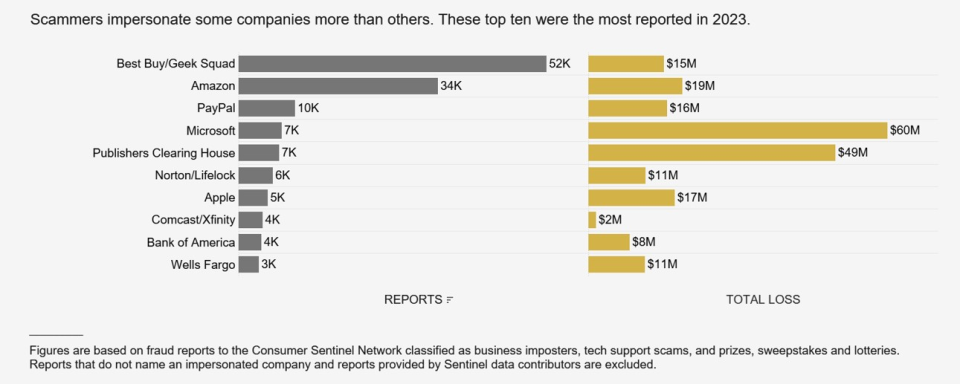
Reports about all types of fraud also tell us how scammers contacted their targets. Last year, people told us that scammers were most often reaching out by email and phone calls. But people also told us that they lost the most money on scams that started on social media. [5] People most frequently named Facebook and Instagram in these reports, [6] and most often reported online shopping scams that started with ads on social media. However, the largest reported losses to scams starting on social media platforms were to investment scams. How scammers get their money varies by the type of scam, too. For example, people who report investment scams most often say they “invested” with cryptocurrency or via bank transfer. [7] Reported payments to scammers by these two methods added up to the highest losses in 2023, both per person and in total. [8] And many people reported using payment apps and services, most often in connection with online shopping scams. [9] Most people who reported using a payment app or service named the company they used, with PayPal, Cash App, Zelle, Venmo, and Apple Pay most often reported in 2023. Gift cards were the top reported payment method on several types of scams in 2023, including romance scams, tech support scams, government impersonation scams, and scams that impersonate people you know, like your boss or a grandchild. Reports show that scammers specify what gift card brand to buy, which most people named in their reports. In 2023, Apple cards were far and away the most reported gift card brand, followed by Target, eBay, Walmart and Amazon gift cards. [10]
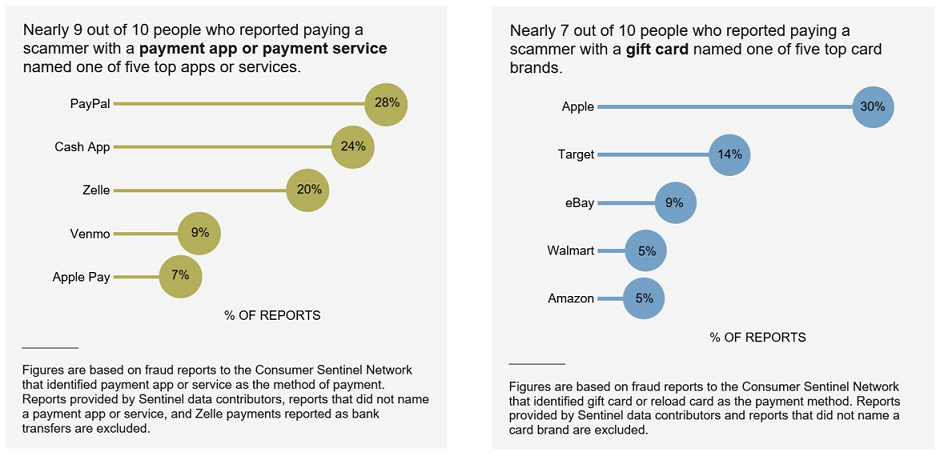
So, how can you spot and avoid these and other scams?
- Stop and check it out. Before you do anything else, talk with someone you trust. Anyone who’s rushing you into sending money, buying gift cards, or investing in cryptocurrency is almost certainly a scammer.
- Never click on links or respond to unexpected messages, and never trust caller ID. If you think a story might be legit, contact the company or agency using a phone number or website you know is real.
- Don’t pay anyone who demands that you pay by gift card, cryptocurrency, money transfer, or payment app. Only scammers say there’s only one way to pay.
And what can businesses do? At minimum, make it easier for customers to reach you to find out what communications are legit. Of course, shifting responsibility onto your customers isn’t the answer, so look to your workforce’s ingenuity to deploy solutions that protect your loyal customers and your good name.
To spot and avoid scams – and learn how to recover money if you paid a scammer – visit ftc.gov/scams . Visit business.ftc.gov to get resources and advice for businesses. Report scams to the FTC at ReportFraud.ftc.gov
[1] In 2023, about 332,000 people reported a business impersonation scam, far more than any other fraud type, and reported losses totaled over $660 million. These figures, and figures throughout this Spotlight, exclude reports provided by data contributors. Because the vast majority of frauds are not reported to the government, these figures reflect just a small fraction of the public harm. See Anderson, K. B., To Whom Do Victims of Mass-Market Consumer Fraud Complain? at 1 (May 2021), available at https://papers.ssrn.com/sol3/papers.cfm?abstract_id=3852323 (study showed only 4.8% of people who experienced mass-market consumer fraud complained to a Better Business Bureau or a government entity).
[2] Government agencies, including the FTC, are often impersonated as well. For more information about government impersonation reporting data, including the most reported agencies, see FTC’s interactive Tableau Public infographic .
[3] Microsoft impersonation reports are generally classified as tech support scams and Publishers Clearing House impersonation reports are generally classified as prizes, sweepstakes, and lotteries. These two Sentinel fraud types were included in this analysis in addition to the business imposter fraud type as they generally include reports about impersonated companies.
[4] See FTC Consumer Alert, New tech support scammers want your life savings (March 2024) available at https://consumer.ftc.gov/consumer-alerts/2024/03/new-tech-support-scammers-want-your-life-savings
[5] Reported losses to fraud that started on social media by year are as follows: $237M (2020), $729M (2021), $1.1B (2022), $1.4B (2023). More money was reported lost to fraud starting on social media than any other contact method in 2021, 2022, and 2023. For more information about contact method and payment method reporting data, see FTC’s interactive Tableau Public dashboard .
[6] In 2023, 51% of reports about fraud starting on social media identified Facebook as the social media platform, and 22% identified Instagram. This excludes reports that did not identify a social media platform.
[7] Of the $1.8 billion reported lost to investment-related fraud in 2023, $707 million was lost using cryptocurrency and $689 million was lost using bank transfers.
[8] In 2023, compared to all other payment methods, total reported losses were highest on bank transfers ($1.7B) followed by cryptocurrency ($1.2B), and median individual reported losses were highest on cryptocurrency ($5,000) followed by bank transfers ($4,581).
[9]Credit cards, debit cards, and payment apps and services were the top three most reported payment methods, though people tended to report losing less money to the scammer. In 2023, the median individual reported losses for these payment methods were as follows: payment app or service ($380), credit card ($136), and debit card ($110).
[10] For earlier Sentinel data about gift card brands, see FTC Data Spotlight, Scammers prefer gift cards, but not just any card will do (December 2021) available at https://www.ftc.gov/news-events/data-visualizations/data-spotlight/2021/12/scammers-prefer-gift-cards-not-just-any-card-will-do .
- Consumer Protection
- Bureau of Consumer Protection
File Data Spotlight - Who's who in scams: a spring roundup (339.06 KB)
More from the Data Spotlight
Impersonation scams: not what they used to be, social media: a golden goose for scammers, iykyk: the top text scams of 2022, romance scammers’ favorite lies exposed.

- Destinations
- For Agencies
Our goal is to provide the highest quality services to make your clients fall in love with Russia.
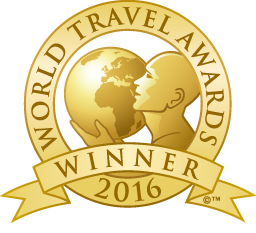
Whether you are looking to get the most out of a tight budget or prefer premium luxury when discovering Russia, Olta Travel will be your perfect partner.
Let us make your tour to Russia a memorable experience, so you can enjoy a worry-free journey!

- FROM BIG GROUPS TO INDIVIDUALS: we craft a tailored offer for almost any budget, thanks to our distributed network of trusted partners, direct connections with service providers and our own profound knowledge of destinations in Russia.
- TOP SERVICE GUARANTEE: We take care of everything to secure travelers’ satisfaction and are prepared to deal with unexpected issues should they arise.
- COMFORTABLE PRICING: Olta Travel keeps the cost of discovering Russia at a fair, reasonable level because we love our country and seek to share this love with you.
- NATION-SPECIFIC PROGRAMS : based on our experience working with tourists from all parts of the world, we know how to surprise and amaze your compatriots with Russia.
PRIVACY POLICY ON THE PROCESSING OF PERSONAL DATA
This Policy of personal data processing (hereinafter - the Policy) applies to all data that "OLTA Travel" Co. Ltd (hereinafter – Olta Travel) receives from the visitors of website http://www.oltatravel.com (hereinafter "the Website") and explains how it is processing, stored and how the confidentiality is ensured.
1. Processing and use of personal data.
1.1. In this Policy, personal information means any information left by users on the Website of Olta Travel, including Name, Surname, company, email address and other contact information, left in the message.
1.2. The person who left personal data on the Website of Olta Travel, consents to their use, namely:
1.2.1. The inclusion of the email address, name, surname, company name or any other contact information left in the message in the contact database of Olta Travel. The database is hosted in a secure cloud-based customer relationship management service Bitrix 24, as well as on a secure service for newsletters – Unisender.
1.2.2. Receiving email newsletters with news, promotions, special offers and other useful materials, but no more than twice a week. The visitor of the Website at any time has the right to unsubscribe from the mailing list of Olta Travel, by clicking on the unsubscribe link located at the bottom of each letter.
1.2.3. Direct communication with the manager of Olta travel on the treatment of the user.
1.2.4. The use of contact information to show relevant advertisements to users in social networks and the Internet.
1.2.5. For other purposes performed with the individual consent of the user.
2. The collection, storage and protection of personal data.
2.1. All personal data collected on the Website is processed, stored and secured in strict accordance with the provisions of the legislation of the Russian Federation (Federal law of the Russian Federation of 27 July 2006 № 152-FL "On personal data") and the European Union (The General Data Protection Regulation (GDPR) (EU) 2016/679).
2.2. Olta Travel is taking the necessary legal, organizational and technical measures to protect personal information from unlawful or accidental access, copying, distribution of personal information, as well as other unlawful actions in relation to personal data of users, which include:
• secure transfer and storage of personal data on secure servers;
• automated processing of personal data;
• identification of possible threats to the security of personal data;
• limiting the number of persons having access to personal data;
• application of measures of internal regulation of the procedure of working with personal data (internal regulations for employees of Olta Travel);
• improving methods of collection, storage and processing of data.
2.3. All data received on the Website of Olta Travel are transmitted via a secure https Protocol and stored on servers in secure, cloud-based customer relationship management service Bitrix 24, as well as in safe service for creating email newsletters Unisender.
3. User rights and obligations of Olta Travel.
3.1. Upon the request from the user Olta Travel should:
• confirm the fact and methods of storage and processing of personal data of users;
• inform about the method of obtaining personal data of the user;
• explain the legal bases, objectives and timing of the processing of personal data;
• in case of personal data leakage, inform the user about it;
• make changes or delete users ' personal data from the database to stop storing and processing it;
• warn about the expected cross-border transfer of personal data.
3.2. The user has the right to request the deletion of his personal data by sending an e-mail to [email protected] as well as the exclusion from the email-mailing by clicking on the "Unsubscribe" button located in the body of each letter.
4. Conditions of termination of processing and storage of personal data:
• company liquidation;
• a written request for withdrawal of consent or exclusion from the database;
• at the request of the user, if the data were obtained illegally.
5. Olta Travel is not responsible for information posted by a visitor on the third party websites, links to which can be posted on the Website of Olta Travel.
6. More information about the collection, storage and processing of personal data by Olta Travel, the user may get by sending an email to [email protected] .
These All-Inclusive Resorts Are Offering Up to 20 Percent Commission
Elite Island Resorts, one of the Caribbean’s top resort portfolios, has some major incentives for agents right now.
The company is offering up to 20 percent commission, along with a $100 gift card and free room nights.
To access this content, subscribe now.
Caribbean Travel Advisor provides 24-7 Caribbean content and news for travel agents and travel insiders. Subscribe today to unlock this article and receive our newsletter, or Log In to read now.
- Categories:
- All-Inclusive , Caribbean Travel Advisor , News
Recent Articles

Southwest Airlines’ Latest Expansion: Cancun, Nassau, Turks and Caicos, Cayman
Flights , news.
The mangroves of the Yucatan. The beaches and restaurants of Nassau. The luxury resorts of Grace Bay Beach. The all-inclusive hotspots of Punta Cana. Southwest Airlines just kicked off a major Caribbean expansion, with new nonstop flights across the wider […]

US Virgin Islands Tourism “Continues to Elevate”
Tourism in the US Virgin Islands “continues to elevate,” with sizzling arrival numbers, strategic marketing programs and a continued buzz across the US territory. That was certainly the takeaway as the U.S. Virgin Islands Department of Tourism delegation, led by […]

Tulum Is Getting More Nonstop Flights Form Canada
The Caribbean’s newest airport is getting another big boost from Canada, with leisure carrier WestJet planning a push of its own. About a month after Air Canada began its first-ever flights into the new Mexican Caribbean Airport, WestJet announced plans […]
American Airlines Backtracks, Will Allow Travel Agency Customers to Keep Earning Miles
Dennis Schaal , Skift
May 29th, 2024 at 3:23 PM EDT
American Airlines tried to drag an entrenched industry toward the airline's vision of a more productive distribution future. But the financial hit stung.
Dennis Schaal
Online and offline travel agencies had faced a July 11 deadline: That’s when flyers buying American Airlines tickets on certain booking sites would have no longer been able to earn AAdvantage Miles.
But American Airlines CEO Robert Isom said Wednesday that the airline has dropped the idea. It was part of an overall retreat in American’s direct-booking strategy as it faces softness in close-in bookings and a weaker financial outlook.
“Next month, we were going to differentiate who earned AAdvantage Miles and who didn’t, based on where they booked. That’s off,” Isom told investors and analysts at a Bernstein conference. “We’re not doing that because it would create confusion and disruption for our end customer, and we’re going to make sure that we take care. We’re listening to feedback.”
The plan had been that the airline would designate “preferred agencies” — who were required to book at least 30% of their flights through American’s New Distribution Capability — and customers of these online and offline travel agencies would have been able to continue to earn AAdvantage miles when buying tickets on these third-party sites.
Travel agencies that didn’t get the airline’s stamp of approval faced the prospect of losing lots of customers who would have had to book American flights on AA.com or a preferred agency.
The airline initially said it would designate preferred agencies by May 1, and later moved that deadline to July 11.
Travel Agency Reaction
Many agencies had no clue if they were going to make the cut.
Zane Kerby, president and CEO of the American Society of Travel Advisors, had fought the airline’s distribution policies, and applauded the airline’s reversal.
“I’m grateful for American Airlines’ renewed recognition of the essential role that travel advisors play in facilitating air travel for our shared customers,” Kerby said. “I want to extend my thanks to American Airlines CEO Robert Isom for acknowledging its previous approach was flawed. Reversing the decision to withhold AAdvantage points and miles for agency bookings is a testament to the firm position that travel agencies hold in the airline distribution channel.”
Kerby said he welcomed the opportunity to work with American Airlines on a “responsible implementation of its NDC program.”
When the news came, ASTA was coincidentally conducting it annual national conference in Dallas, in the airline’s Fort Worth headquarters back yard.
American hasn’t definitively given up on direct distribution, however.
“We’re learning and adapting,” Isom said. “We know that NDC, modern retailing provides a better experience for the end customer. And we know that we will get there over time, but we have to go about it differently. We’re going to make it easier, we’re going to execute better and we’re going to do a lot more to try to bring people along with us.”
Jet Stream Newsletter
Airline news moves fast. Don’t miss a beat with our weekly airline newsletter. Landing in your inbox every Saturday.
Have a confidential tip for Skift? Get in touch
Tags: aadvantage , american airlines , asta , business travel , distribution , loyalty , ndc , new distribution capability , online travel newsletter , per diem
Photo credit: The tail of an American Airlines aircraft. Airbus / Airbus

Santa Cruz County Regional Transportation Commission to get first look at passenger rail vehicle types
J un. 3—WATSONVILLE — As a local transportation agency continues progress on a multi-year passenger rail study, its planners are ready to share options for potential vehicle types commuters could end up riding in should the project come to fruition.
At its meeting Thursday, staff with the Santa Cruz County Regional Transportation Commission will give commissioners an early look at three vehicle options for carrying passengers 22 miles along the Branch Rail corridor, from Watsonville to Santa Cruz.
The three varieties, which will be presented with a pros and cons comparison in relationship to one another, are locomotive hauled trains, multiple unit trains and light rail vehicles.
Though the commissioners will provide feedback in response to the proposed trio, the public will also have plenty of opportunities to share thoughts of its own outside of the public comment section of the meeting. Two in-person open houses will be held June 24 and June 25 in Watsonville and Santa Cruz, respectively, so community members can dig into the possibilities.
The Watsonville meeting will be held from 6-7:30 p.m. at 275 Main St. and the Santa Cruz meeting has been slated for the same hours the day after at 1900 17th Ave.
According to the staff report, the final vehicle type will influence the design of the project components including platforms, bridges, signaling, power supply, freight interface and potentially how competitive the project will be for future state and federal grants.
The vehicle deep dive is a component of Milestone 2 of the commission's Project Concept Report, which was ordered in 2022 and is intended to give a detailed look at the engineering, infrastructure, program design and environment requirements for establishing a zero-emission passenger rail system in the county. The second milestone also includes development of conceptual alignments for the railway that explores the necessary width to accommodate both rail and a trail, travel times, scheduling and train travel speeds.
A draft of the roughly $9.2 million concept report, along with preliminary project cost estimates, is expected to be completed in early 2025 with the final report coming that spring.
The meeting is set to begin at 9 a.m. within the Watsonville City Council chambers at 275 Main St., fourth floor, Watsonville. The passenger vehicle type item specifically will be considered no sooner than 10:30 a.m.
Cost overruns
A project, led by the commission in partnership with Caltrans, to construct auxiliary lanes and bus-on-shoulder improvements from Soquel Drive to 41st Avenue is moving along but it's going to need a few million more dollars to get it across the finish line.
The Regional Transportation Commission will consider programming an additional $2.8 million of its Measure D-Highway Corridor funds to address construction overruns for the mile-long effort. The commission has already committed $5.2 million of Measure D funds for the $38.6 million project with another $35.3 million coming from state and federal grants, according to the project fact sheet. Still, the state grant for the effort specifies that as the project sponsor, the commission is responsible for cost overruns for construction capital and support components, according to the staff report.
What: Santa Cruz County RTC meeting.
Why: Overview of passenger rail vehicle types.
When: Meeting starts at 9 a.m. Vehicle item will happen no sooner than 10:30 a.m.
Where: Watsonville City Council chambers at 275 Main St., fourth floor, Watsonville.
(c)2024 the Santa Cruz Sentinel (Scotts Valley, Calif.) Distributed by Tribune Content Agency, LLC.

IMAGES
VIDEO
COMMENTS
Travel advising is a commission-based industry. Travel agents, including Fora Advisors, are predominantly paid in commissions. A commission is a percentage of the cost of a travel experience (such as a hotel stay). Some agents also charge planning fees for additional services (more on that below).
Airlines offer travel agent commissions through two routes: 1. AIRline Consolidators: These are airline wholesalers. They specialize in air and have private contracts with the airlines. Travel agents can make money with these airline consolidators in one of two ways: commission and marking up net rates.
If you are hoping to make $60,000 a year, per month divided by 12, that's $5,000 per month in sales. If each vacation is only $5,000 ($500 commission)- that is about booking 10 vacations a month (or 2.5 vacations a week). With strategic growth, higher ticket vacations and/or increased sales volume, reaching six figures becomes a tangible goal ...
The commission-based business model allows travel agents to earn a percentage of the total cost of a travel package, such as flights, accommodations, and activities. Depending on whether the package is domestic or international, travel agent commissions may be as low as 5% or as high as 20% or more. Service-Fee-Based.
1. Commissions. How travel agents earn commissions from airlines, hotels, and other travel providers. Travel agents earn commissions from airlines, hotels, and other travel providers when they book a reservation for a client. The amount of commission that a travel agent earns is typically based on the cost of the trip.
According to research by Statista, as recently as 2022, the travel industry was reported to be worth as much as two trillion dollars.It is one of the largest industries in the world based on employment, with an average growth of 12% over the past five years specifically among travel agents.. Travel agents earnings are made up of a mix of salary, commission, and other incentives.
Travel agents' commissions vary based on factors like the booking type, travel elements, and the vendor they work with. Commissions can range from as low as 5% to as high as 30%. For instance, if a travel agent earns a 10% commission on a $2,000 booking, they would make $200. However, if the booking is complex, involves multiple countries ...
As a general rule, leisure travel agents make money from commissions from vendors pay on vacation packages, cruises, air, and other add-ons. However, consultation fees and service fees are becoming more common as agencies try to diversify income sources to become less dependent on supplier commissions.
Some larger agencies take a percent of the entire event (on top of commissions), we find these costs can end up being between 15-35%. Some of these costs are transparent usually around 15-20% and others are not (usually additional 10-15%). This is the most common billing method for incentive trips. Other agencies like Executive Group Travel ...
The BLS data has shown a 26% increase in travel advisor salaries over the past decade. The graph below illustrates how it's increased over time. The BLS' latest numbers (2024) reported an average travel agent salary of $50,040 1. Here's a few things to keep in mind about the BLS numbers: BLS only profiles employees.
The commissions offered by suppliers in this category can vary based on factors such as the type of transportation, location, and the supplier's agreement with the travel agent. Here's a breakdown of these opportunities: ... Travel agents' commissions reflect the effort and expertise they invest in planning trips, helping their clients ...
Historically, travel agents operated on a commission-based model, earning a percentage of the total booking value. However, the landscape has evolved significantly over the years. The rise of online travel agencies and direct bookings led to a shift in the commission structure, prompting many airlines and other travel service providers to ...
Commission is the most common way travel agents make money. When a travel agent books a trip for a client, they receive a commission from the supplier, such as an airline or hotel. The commission rate varies depending on the supplier and the type of travel product being booked. For example, airlines typically pay a commission of around 5-10% on ...
The future of travel agent commissions. The travel industry is continually evolving, as are commission structures for travel agents. With the rise of online booking platforms and direct bookings by consumers, some travel agents have faced challenges in maintaining their commission-based income.
May 11, 2024Selecting an appropriate host agency is vital for any travel agent, whether new or experienced. An essential aspect to consider is the commission structure, as this directly affects your potential earnings and business growth strategy.Understanding a Host AgencyA host agency supports travel agents by offering essential services including accreditation, access to preferred vendors ...
Most of the money travel agents earn is through commissions. For example, when you book a trip with Carnival Cruise Lines, you'll receive a percentage of the cost of the trip as a commission. This also applies to airlines, hotels, and many other travel-based businesses.
Collette. The tour operator offers up to 15% commission some advisors said, noting that they also pay upfront well too. "Collette Vacations pays $100 per person at time of booking and deposit and then remaining commissions when people travel," said Hansen. For the latest travel news, updates and deals, subscribe to the daily TravelPulse ...
Behind the scenes of every booking is a complex web of commissions, percentages, and agreements that fuel the industry. For travel agents, understanding how earnings are determined is paramount, and empowers better decision-making. The travel agent commission calculator below is designed to help calculate travel agent commissions quickly and accurately.
In the past, many travel agents' services were free, as they earned a commission off the trips they booked paid out by the airlines and hotels. Some still are.
While commission-based income is the primary source of revenue for cruise travel agents, some agents may also charge agency fees for their services. Agency fees are additional charges that cover the time and expertise provided by the travel agent throughout the planning and booking process.
The average cost of travel insurance is 5% to 6% of your trip costs, according to Forbes Advisor's analysis of travel insurance rates. For a $5,000 trip, the average travel insurance cost is ...
Based on how the hearing went, game commission officials have work to do to restore lawmakers' confidence in their ability to properly run the agency that serves sportsmen and conservationists ...
Travel Insured, World Trips and Seven Corners are the best Covid-19 travel insurance companies, based on our analysis. Most travel insurance policies cover Covid-related issues like any other ...
Lina M. Khan was sworn in as Chair of the Federal Trade Commission on June 15, 2021. Chair Lina M. Khan. Search Show/hide Search menu items. Enter Search ... and never trust caller ID. If you think a story might be legit, contact the company or agency using a phone number or website you know is real. Don't pay anyone who demands that you pay ...
01. 02. 03. Aba Travel, Moscow. Verkhniye Polya 4. Aba Travel is a new generation tourism company based in Moscow, Russia. We organize individual and group tours, excursions and all kinds of travel services, including tourist visa, air tickets, hotels, tour guides and transport.
Our goal is to provide the highest quality services to make your clients fall in love with Russia. OLTA Travel is a leading Russian DMC with offices in Moscow, Saint Petersburg and Irkutsk (Lake Baikal). Tour operators, travel agencies, and other businesses from more than 53 countries have selected us to experience an unforgettable Eurasian ...
Elite Island Resorts, one of the Caribbean's top resort portfolios, has some major incentives for agents right now. The company is offering up to 20 percent commission, along with a $100 gift ...
The airline initially said it would designate preferred agencies by May 1, and later moved that deadline to July 11. Travel Agency Reaction. Many agencies had no clue if they were going to make ...
The commission has already committed $5.2 million of Measure D funds for the $38.6 million project with another $35.3 million coming from state and federal grants, according to the project fact sheet.